
Бесплатный фрагмент - Chronicles of the whole world
Heyday time
To my parents
Prologue
— No, mom! Emma slammed the door shut and sat angrily on the bed. The skirt was inflated like a bell, to which the mistress of the skirt began to furiously nail this silk bubble to her legs. In the distance, on the street, there was the sound of a passing horse-drawn carriage, the clatter of hooves, the cries of newspapermen. There, outside the window, people were doing the work for which they were best adapted, and no one interfered with them, did not set prohibitions, and did not threaten to send them in marriage to Berlin. As if a newspaperman couldn’t even sell his stupid papers in Berlin.
Emma pouted her lips in resentment, as if compensating for the restored prettiness of her own skirt, no longer a bell, but quite a girlish piece of clothing. The skirt was new, amethyst, with a deep glossy sheen and dark blue, almost black, embroidered flowers. With a thin, long finger, Emma began to trace the flower. With each new circle, her thoughts calmed down, lined up, took shape and logical sequence. No, in her parents’ house she will remain just a girl, capable of nothing but knixens.
Half an hour ago, when Emma stood in line at the small post office and thoughtfully looked at the back of Mrs. Krause, she knew that this conversation with her mother would take place, that it would end quite expectedly — a scandal, that mother would go out again to smell her salt, and in the evening she would saw her father, so that he would talk to his daughter and guide her on the right path. Emma idolized her father, but she could not cross out her own dream. Then she would cease to be herself and, therefore, would cease to be Emma Sascha Osterman, the daughter of Uwe Stefan Peter Osterman, director of the Storkov Gymnasium. Emma came to the post office with one goal — to cut the ropes.
Most of all, Emma loved the sky. And as if reciprocating the sky was a little closer to her. The thing is, Emma was tall. Above mom, dad and all the misses and mrs of their small town. Her parents were quite average in height, they did not consider themselves outstanding people and tried to correspond to this middle in everything. Emma, on the other hand, has been stretching upward since childhood: climbing trees, jumping from a neighbor’s barn, staring late into the night sky, hovering in the clouds. In a word, Emma Osterman was not like everyone else.
Chapter 1. Not like everyone else
The city of Storkov is located on the lands of the Principality of Brandenburg with all its Prussian pedantry — exactly between the lakes, girdling itself with a canal for beauty. Here, little Emma ran along the coast after a kite, secretly climbed from her parents to the closed Jewish cemetery, played hide and seek with her friends near the old castle, went with her family to the church, resting on the sky with neo-Roman crenellations, like a crown, dangling after school at the old gateway, walked around the market square with her younger brothers: first Jacob, then Klaus, Arnd, Henning, Ivo, and finally the twins Franz and Fritz. Yes, the older Ostermans cannot be called childless. From so many offspring, Lise Osterman dried up early, as if weathered. Many pregnancies did not affect her figure in any way, which is why she still walked without corsets, as thin as a twig, but somehow withered. Early gray hair silvered a dark knot of hair, her shoulders drooped, her gaze faded — in a word, Mrs. Osterman began to get tired of life. Her husband, Uwe, nevertheless loved his wife and was sad because the once cheerful and sonorous girl disappeared, and a little old woman came in her place. Lisa was two years younger than him, but at forty-two she looked much older than her forty-five-year-old husband. For days on end, Mrs. Lise sat in her room or lay on the couch and thought about how fast and bleak her life was. Headaches and fatigue became her faithful companions, the governess Vilda, devoted to the family, completely took care of the children, although she was going to ask for resignation after Arnd, because nothing prevented Lise from covering herself with dust in her boudoir and indulging in useless dreams.
Children, as befits a mother, Lise loved. But love detached, cold and measured. The desire to somehow limit the family circle of relatives, crawling out like yeast dough from the basin here and there, led Mrs. Osterman to a logical and reasoned conclusion in her own way: if you do not show your love to children, then, you see, new offspring will not appear. The nuance that children do not appear at all from maternal love, Mrs. Osterman for some reason missed. Once upon a time, little Emma aroused such delight in Lise that she could not believe in her own happiness. Having children late — where has it been seen that a respectable German woman gives birth to her first child by twenty-five? Mrs. Osterman could not stop admiring the little crumb. Secretly from her husband, she kissed her daughter’s every finger, blew in her stomach and tilted her curls over her, trying to tickle this caramel candy to a low and sweet laugh. Emma pulled her mother’s hair, Lise playfully widened her eyes and kissed, kissed, kissed her impossible happiness. There was no Vilda nearby, and Emma belonged only to her. Her and Uwe.
And then something broke in the universe familiar to Lise, and the children clicked out of it like toy eggs from a clockwork chicken: poke, poke, poke, poke! Lise did not understand how this was possible, but with each subsequent son, Uwe hugged her tighter at night, and kissed her hotter, that there was absolutely no strength to resist this. She didn’t resist. She pecked her grains from the plate, and from the other end — poke, poke, poke, poke. Nineteen years after Emma’s arrival, Lise was so tired that she could no longer see or hear her family. Every creak of the floorboards under Ove’s feet reminded her of a poke, which left Mrs Osterman with no choice but to pretend to be sick or asleep. On the nightstand next to the bed were bottles of smelling salts, vials, and beakers of medicines for anemia, boredom, and old age. Over time, Lise so believed in her invented illness and fatigue that she forgot that she only wanted to get a break. Now her family really oppressed her, her head ached, the bottles were changed and added to the nightstand at some frightening rate, and Lise still refused to change anything.
Mother knew that almost certainly Emma was now sitting on the bed, hugging a book. Lise did not understand this affection and therefore did not accept it. Four years ago, Uwe went to a book fair in Berlin to see the new grammar school textbooks. I brought a book from there. One book. Some book dealer’s daughter fell ill, all the savings were spent on treatment and there was nothing left but to sell the last. The bookish man brought everything valuable and not very valuable to the fair, sold it cheaply, without haggling, shaking his hands and getting excited. Uwe, who adored his daughter, understood the second-hand bookseller very well, but he was limited in money, so he bought only one. The Chronicles of the Whole World was pleasantly old, but not ramshackle. The salary was not rich, skillful. Thin silver curls were arranged in intricate drawings at the corners: a knight on a horse, the sun and wind, a tree and a man under it. On the last corner there was a small magnifying glass and gears. The skin is thin, soft, dark blue, the same as the sky after sunset, when the night has not yet come, but just about. The locks on the book had long been lost, but the binding was still strong and the pages were soft. The folio did not have a mention of the author when it was published — it is not known, engravings included not only military, but also secular topics, it was written in German.
«Two hundred and forty marks?» — Lise was amazed when she found out the price of antiques. — Yes, you’re crazy. We could stock up on coal for the whole winter.
«But coal doesn’t warm the soul, dear. Mr. Weiss did not bargain, the book obviously costs more, — the head of the family peacefully held the defense. «And we were given the opportunity to help in trouble. Don’t worry about the winter, I’ll get the money.
I got it, of course — Uwe never deceived his wife. Ove read the Chronicle in random order and used the book more often to calm his nerves than to gain knowledge. The younger children twisted the book and put it aside, only Emma and Jacob dragged it to their rooms — either to look at the engravings, or to read. More and more often, Uwe began to find his sleeping daughter in an embrace with a book, either in an armchair or right on the bed. The patterns of the salary were imprinted on her tender cheek, Emma mumbled something sleepily and released her jewel from her weakened hands. Gradually, Osterman resigned himself to moving the book into the girl’s room and no longer tried to penetrate the depths of the Chronicle. Jacob and his sister reached a consensus: sometimes he was content with retelling, sometimes he read when Emma was not in the house. He carefully returned the book to his sister on the table. Uwe was amazed at the rare harmony that developed between the older children: they did not share the object of desire, but owned it respectfully and with dignity. A couple of years later, Osterman asked his daughter what attracted her to the Chronicle so much, why she reread it again and again.
«She teaches,» she shrugged, as if unsurprised. «It seems to me that I can find answers to all questions in it, I just need to wait for the right chapter. Every time I open it, I find more and more new words and previously unseen images. I wonder how could I have missed this? And then I understand that the last time I was thinking about something else and I was worried about something else, that’s why these things did not seem important. In general, it’s nice: the book is like an old friend who does not get bored.
What do you want to learn from this friend? — the daughter graduated from the gymnasium, and it was time to find out if the girl dreams of further studies or plans to get married.
«You see, Dad,» Emma suddenly looked embarrassed, «I wish I could be strong enough to do things on my own. And not what my husband, father or state tells me.
This adult invention of Uwe did not surprise, but upset. His girl was going to live and, it seems, live not at all the life that he wanted for her.
«Well,» Osterman patted Emma on the shoulder, «my mother and I will try to get used to this idea. We have time to spare.
And a month ago, the time was up — Emma graduated from the thirteenth grade of her father’s gymnasium and had to decide where to go from her parental home: to the University of Baden, where they began to accept women for training, to agree with one of the local gentlemen, or to find a job in some shop…
Upstairs, the daughter paced her little room. Temporary calm gave way to springy activity that demanded an exit. Again and again Emma quoted from memory the letter now in the mail with a round postmark on the envelope «☆ Storkov ☆ –1 VII.17.06–»:
Your life’s work has already become a legend. Your triumph is a triumph of German character, German will and German technology. It is incredible what a person can achieve with the help of the elements. And although the natural forces cannot be changed or destroyed, they may well oppose each other. In order not to depend on air currents, a more significant force is required than the wind — and you have proved it. I ask you to honor and become such a force for me. I completed my studies at the gymnasium, graduated from the correspondence course in stenography, I speak French, Polish, English and Italian, I am not afraid of any job, even low: work in the kitchen, clean rooms or wash clothes. Please give me a chance to go through all the difficulties with you and be involved in your inspiring struggle with circumstances.
The letter was short. Emma rewrote it dozens of times until she was completely satisfied with the content. She didn’t want to look pathetic or crazy. The dream required realization and Emma did not come up with another option: you need to capture the wind that is. Let its impulses sometimes break and tear the threads, but everyone who sailed or flew a kite knows that if you catch your stream, it will lead you to the goal. Emma dared to write to a man who was both a hero and the laughingstock of the empire. Kaiser Wilhelm II is said to have called him «the dumbest of all South Germans.» But is it possible to confuse stupidity and stubbornness? Emma’s hero had a flexible morality and a strong spirit. His business failed more than once, but rose again and again like a phoenix from the ashes. «It is only natural that no one supports me, because no one wants to jump into the dark. But my goal is clear and my calculations are correct, «the Berlin Stock Exchange quoted the stubborn one. Emma was not at all afraid to jump into the dark: she was too young to weigh all the risks.
Numerous feet stomped in the corridor. The brothers rushed from the street at full speed: it’s supper time. The boys’ room was across the hallway and was the largest room in the house. It used to be the parents’ bedrooms, but when Lise became pregnant with her fifth, Osterman hired a carpenter who broke the partition between the rooms, and then, together with an assistant, arranged the boys’ beds and desks for classes. The couple moved to the first floor in the guest rooms, next to the pantry and dining room. Vilda huddled in the closet through the wall from Emma. Her sensitive Bavarian hearing more than once stopped the slightest fuss in the nursery at night. Twelve years later, the interior of the boy’s room has completely changed: the desks have disappeared, the bunk beds of the older brothers stood on the edge of the windows, Ivo slept on one side, and on the other, the bunks of Franz and Fritz shifted at an angle so that the twins could whisper head to head. A bookcase rose up to the ceiling between the windows, and in the center of the room stood a large round table, the former dining room, which was now used for study. It was forever littered with notebooks, pens, dry inkwells, and broken pencils. Vilda did not lose hope of recreating order on the table, but chaos defeated her aspirations again, and again, and again. Life in this room climbed from all the cracks, and there was nothing to be done about it.
Finally, Jacob’s footsteps were heard in the corridor. Emma could not confuse them — her brother walked with a cane. As a child, having been seriously ill with rubella, he received a complication on the joints. Arthritis exhausted the boy, twisted his right leg. The pain practically did not leave him, because the child early became tolerant of the trials that rained down on his head. At fourteen, Jacob was hardly taller than ten-year-old Henning, but in endurance and wisdom he could compete with his father. Emma opened the door and stuck her head in the doorway:
— Sent! she whispered into the gloom.
«Mom will kill you,» the twilight answered, and his brother quietly entered the room.
Jacob closed the door behind him and sank wearily into a chair. Dark whirlwinds gave the boy the appearance of a gypsy, and a calm and intelligent face — the appearance of an intelligent gypsy, almost an aristocrat. Emma kissed him lightly on the top of his head; she loved her brother almost as much as her father.
«Already killed.» Emma sat down on the bed with a sigh. We got into a fight as soon as I got back. I don’t know why she decided to find out where I was, apparently, intuition.
«Don’t confuse intuition with a good memory,» Jacob stretched out his bad leg and leaned his cane against the armrest. — The day before yesterday at Ivo’s birthday party, you blurted out that staying at your parents’ house is tantamount to imprisonment. And you, they say, are not a bird to sit in a cage. Well, now wait, birdie, when you are plucked.
«Come on, our mother never cared where we were or what we did. Vilda did more for us than she did.
However, she is a mother. And you are her daughter. And she has every right…
«… to pluck me,» Emma finished after her brother, «I remember. How did you get off?
— I was with my dad in the library, and the rest were playing football in a vacant lot. Klaus got his nose smashed with a ball, but I don’t think it’s serious.
«Vilda will kill you,» Emma repeated the phrase with the same intonation as Jacob. They both laughed, very much like it happened.
They paused, listening to the sounds of the street and the noise in the nursery. They did not need to speak, they understood each other from half a word and even half a thought.
— Are you sure? What did you do right? Jacob looked at his sister with intelligent blue eyes. He looked terribly like his mother, the same oval face, the same dimples on his cheeks. In a month and a half he will turn fifteen, and despite his lack of height, Jacob did not look like a teenager, a young man had already begun to form in him.
— I’m suffocating here. One and the same: study, home, friends…
— Me.
— Yes, you. Emma felt sad. But I’m not leaving for you. You know. I can’t live without air. The sky is everything to me. Well, not everything, — the sister interrupted herself, — but a lot. I love you, I love my father, but I cannot give my whole life to this love. I want to do something that the whole empire will talk about. I want to touch the great, really big and real, what will remain for centuries.
Jacob looked at her for a long time, then sighed and stood up:
— Well. You are a true woman of the twentieth century. And you are my sister, I will be proud of you anyway.
And left the room.
For dinner, they served thick pea soup with meatballs, large boiled potatoes sprinkled with small capers and poured with melted herbal butter, herring rollmops with gherkins, a salad of homemade vegetables that grew in the garden behind the house, the children waited for tea with the remains of the «wooden» pirogue. Actually, this is a Christmas delicacy, but on Sunday they celebrated Ivo’s birthday, and the birthday boy asked the cook Anna for it. Vilda dined with her family, looking after the twins. She sat at the end of the table, seating six-year-olds to her right and left. Of course, my mother was supposed to sit opposite my father, but in the Osterman house everyone had long given up on conventions — order at dinner was more important, and Vilda knew how to pacify the twins with one glance. So they sat at a long table: Uwe, Lise to his right, Klaus, Arnd and Fritz, Emma, Jacob, Henning, Ivo, Franz and Vilda to his left.
The weather Klaus and Arnd spent the whole dinner whispering about the last football match: how who scored, how who circled the defense, and how the ball flew right in Klaus’ face. Henning and Ivo, ten and eight years old, ate busily, quickly, apparently, they started to rush in the evening to the garden where they built a hut on a tree. The twins picked the herring and waited for the sweet to be served. Emma waited with a heavy heart for a conversation with her mother, her father read the evening paper, Jacob chewed, looking thoughtfully into the darkness outside the window, Vilda shushed at the children. Lise looked around at her family and sighed. This was the signal: the daughter put down her fork and exchanged glances with Jacob.
— Dear, do you know what your children did today?
«Hm-m-m-m…» Ove reluctantly looked up from the newspaper, but did not look up. «I suspect they were happy?»
«That’s how to say it,» Lise moved the newspaper away from her husband’s face with her hand. Your daughter is leaving home!
— Mother! I’m not going anywhere yet! Emma’s face flushed, her hands clutching the napkin in her lap. Jacob put his hand on them under the table, his sister now needed support.
— So. Where are you planning to go, honey? My father wasn’t angry, he was just asking. «And, most importantly, when did you want to notify your mother and me about this?»
«Dad… I just wrote a job application. And I don’t know if they will invite me or not. I don’t want to go to university, at least not now.
«In any case, the road to Baden-Württemberg awaits her,» Jacob interjected quietly.
— Married, as I understand it, you’re not going to? the mother jumped up.
«It seems to me that we have enough children in the house, why do you need grandchildren as well?» Emma said coldly.
Mrs. Osterman pushed her chair back with a thud, threw her napkin on the table, and reproachfully said to her husband:
— You will be silent?
She left the kitchen, slammed the door to her room, and there was silence. The younger children sat motionless. Vilda counted to fifteen and in a whisper ordered the twins to leave the table.
«Let them stay,» my father said sternly. Everyone should know what I’m going to say.
Emma straightened her shoulders and stood even taller. Her father never yelled at her. This is likely to happen even now. But the time has come to defend his own position, which means to hurt him. Emma didn’t want to hurt.
«No one would ever dare to talk to a mother like that. She gave you life. There is nothing more valuable than this. And even if you find her participation in your fate insufficient, this does not mean that your mother owes you something in addition to what she has already given.
Osterman’s voice seemed to cut the stones from the rock. He looked at his children carefully and sternly.
But dad…
— Shut up, Emma. I’ve never been hard on you, although I probably should have. You are my only daughter, and my mother and I put all the love we had accumulated into you when you arrived. Don’t be ungrateful.
— I’m already…
— I know how old you are. And I know what you want. You are free to do as you see fit. But we are still your parents. We are responsible for you and your brothers. We are responsible for the unity of the family. Even when you all grow up and leave this house, each of you will be connected to it by an invisible thread. This thread is called kinship. You should apologize to your mom. And then we’ll talk to you alone about the trip.
Emma hung her head. The boys looked at her with wide eyes. Vilda looked from Emma to Ove and tried her best to signal him to be gentle with her. However, Osterman did not see any of this. He looked at his daughter, at the parting of her wheaten hair, at her hunched shoulders. Uwe saw how Jacob gently squeezed his sister’s hand with his.
— Okay, dad. I’m sorry. Right now.
Like a balloon, the daughter was blown away and drooped.
«Go upstairs,» Uwe said in a tired voice.
Armchairs moved, clothes rustled, children silently rushed out of the dining room. Vilda followed the brood, looking back.
— Jacob, quickly into the room!
Jacob also stood up, leaning on his cane, and touched his sister’s shoulder as support.
— Good night, dad.
— Good dreams, son.
There were faint footsteps on the stairs. Anna had long ago stopped rattling dishes in the kitchen and went into the garden. Father and daughter were left alone.
— Forgive me, dad… I was angry. For mom. I remember how in childhood she played with me, braided braids, dressed up. I remember her hands. And the smell. And laughter. Where is our mother? Why did she stop being like this? Why did she stop loving us?
Ove was silent for a long time, then folded the newspaper, got up from the table and walked around the dining room. Emma looked at him furtively. She was sad and ashamed at the same time. The father returned to his chair, leaned against the back, looked at his daughter.
«I think she still loves us. Just reduced the intensity of love. Now, when she needs to pour love not only on you and me, but also on your seven brothers, it is obvious that the stream for each of us will become smaller and poorer. But that doesn’t mean it has stopped. Being a mother is hard work. And even if it seems to you that she does nothing: she just sits at home, then this is not so. You don’t see half of the care your mom gives you. You and your brothers. You don’t know fatigue yet, girl. You are strong, proactive, assertive. The only problem is that you are not wise.
— How to become wise, dad? Emma lifted her head and looked at her father.
«Unfortunately, it will happen on its own. And even more unfortunately, this will happen only with losses. Only pain teaches us wisdom.
«I can take the kettle off the stove with my bare hands!» Or hold your hand over the fire! How many say!
Ove took a deep breath.
— To become wise, you need to keep your soul above the fire… It happens that even physical pain does not add to the mind. But there are always losses. If you really want to leave home, don’t leave your mom with a broken heart. And, most importantly, do not keep such memories for yourself. Perhaps you will no longer have others — no one knows what awaits you at the other end of the journey…
Suddenly, Emma realized that tears were rolling down her face, that she was terribly sorry for mom and dad, and she felt sorry for everyone else. Poor she is poor, where does she climb, here, at home, it is warm and comfortable, why does she need this fight, because this is not her struggle. She would marry the son of a pharmacist or even a burgomaster, become a burgomaster’s daughter-in-law, give birth to children, gain weight, lure Vilda away… Emma cried and laughed at the same time.
— What are you? Ove was surprised. Of course, he met hysteria in women, but his daughter was distinguished by mental health. At least before.
— Bur…. Bur… burgomaster’s daughter-in-law,“ Emma gurgled, choking with laughter. „I imagined that I was the burgomaster’s daughter-in-law and that I took Vilda away from you. Dad, I’m afra-a-a-a-id… Suddenly he won’t answer… — Emma roared again, now at the top of her voice, giving vent to tears.
The father shook his head in surprise, took a linen napkin from the table and handed it to his daughter.
* * *
Three weeks later, when Emma had lost all hope and secretly began to study the brochure of the University of Tübingen in Baden, the postman brought an open letter. On the front side, a girl was sitting in a basket of roses. Lines stretched from the flower gondola to the airship of forget-me-nots, the young pilot cheerfully turned the steering wheel and smiled. The inscription was for some reason «Happy New Year!». There were several lines on the back: Dear Miss Osterman. You will do me the honor of accepting an invitation to work for the Zeppelin Group Airships. Ferdinand von Zeppelin.
— Vilda! Emma gasped. What time does the morning train to Berlin leave?
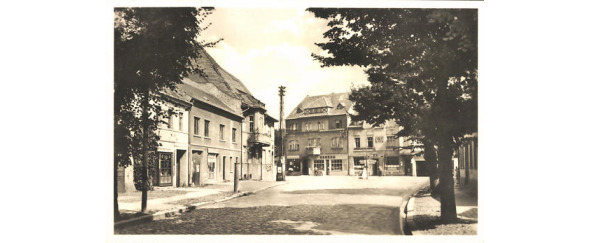
© oldthing.de
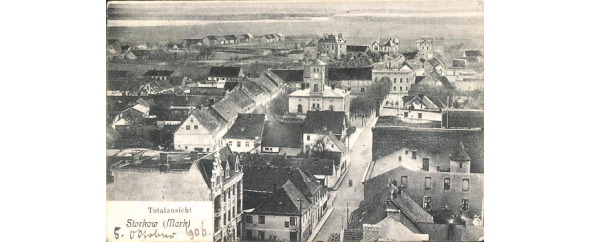
© oldthing.de
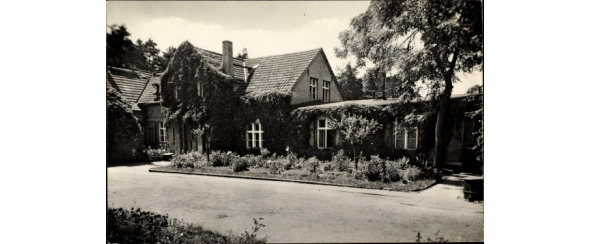
© oldthing.de
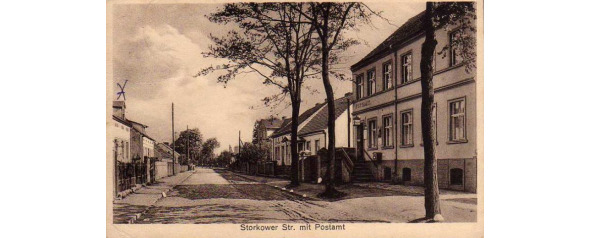
© oldthing.de
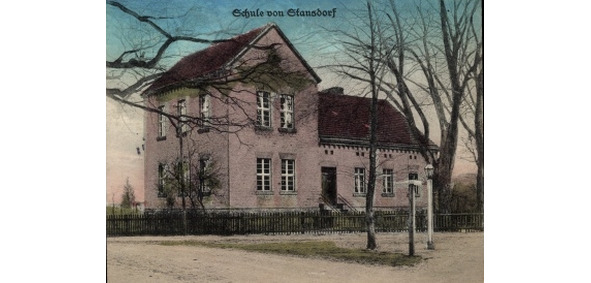
© oldthing.de
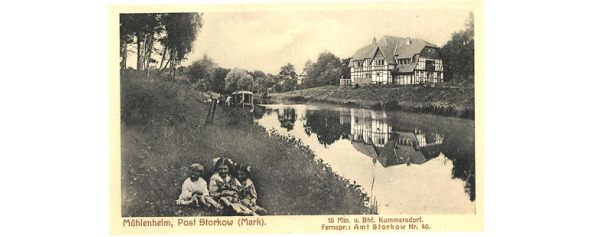
© oldthing.de
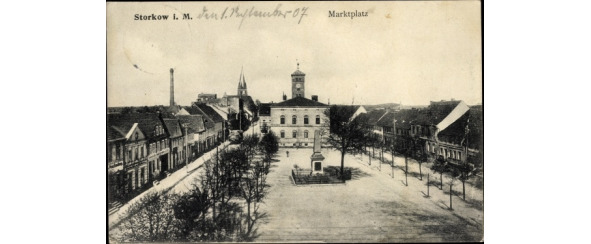
© oldthing.de
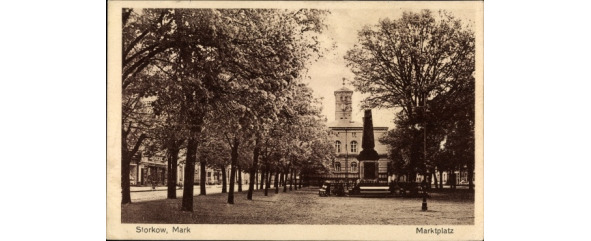
© oldthing.de
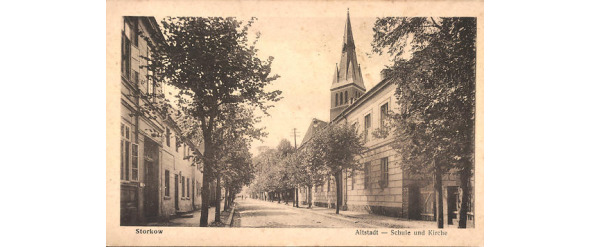
© oldthing.de
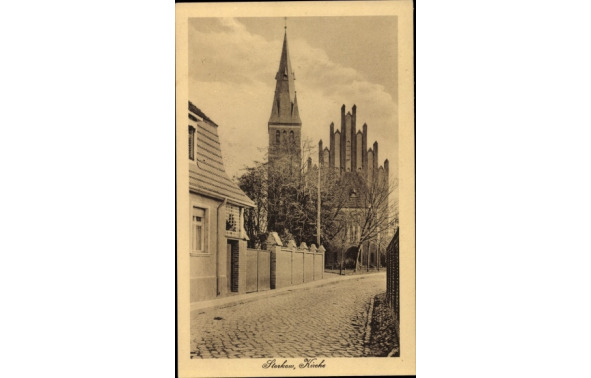
© oldthing.de
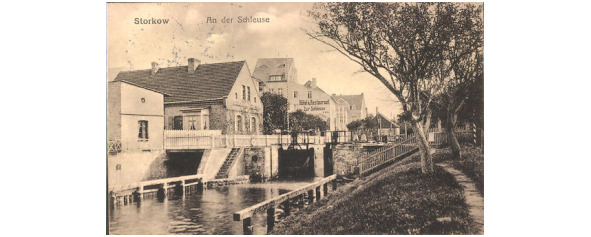
© oldthing.de
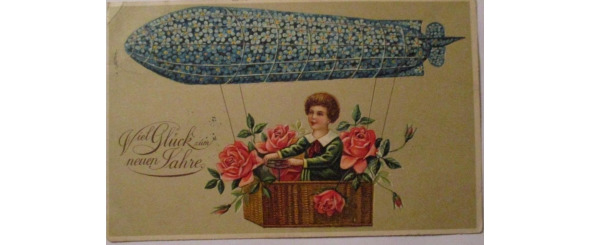
© oldthing.de
Chapter 2. To Berlin
Emma hurriedly packed her things, as if the Zeppelin had told her to start work at eight tomorrow instead of when. Stockings, pantaloons, day shirts, corseted bodices and stocking garters flew into the bag. Emma planned to ride in a travel suit, dark, but light, which was not afraid of dust or smoke. She took only two dresses with her: a brown training, simple, for every day, and dark blue, with puffy sleeves, for going out. The «happy» purple skirt, a pair of shift blouses, and a jacket were already in a small wooden suitcase. The rest of the clothes, including outerwear, hats, shoes, as well as books, care products and simple jewelry, Vilda will send by courier later. Between the lace and batik in the luggage was a book, carefully wrapped in brown paper and tied with twine. Father was silent for a long time at Emma’s request to take the Chronicle out of the house, and then replied — well, let at least something remind you of your family. The daughter thankfully kissed his hand and ran upstairs.
Jacob somehow turned gray, haggard. They had not parted with their sister for a long time, and what it would be like for him to become the eldest child, he did not understand. Vilda begged Emma to leave on the Thursday morning train so that Emma would have time to clean herself up upon arrival, and look around, and talk to her superiors. So Jacob had three extra days to collect his thoughts.
«I’ll write to you so often that I’ll even get bored,» Emma chirped, sitting with her brother on the bed and hugging him tightly.
«You won’t,» he answered judiciously and muffledly: his face was buried in his sister’s shoulder, «a new life will twist you.» At first we will receive a letter a week, then once a month, and then we will learn about your progress from the newspapers. After all, it is clear that your successes will coincide with the achievements of Zeppelin.
Emma kissed the top of his head, rocked him in her arms and was happy. Little lies did not bother her, because love is not measured by letters. Jacob foresaw a long separation and for the first time he was angry with his sister, although he did not show this anger. One evening Vilda found him in the dining room, thoughtful, hunched over, staring straight ahead.
«Isn’t it about you, young man, that it’s time for you to sleep, but you haven’t washed yet?» the nurse remarked sternly.
Jacob absently looked at her large face, tall figure, a true German: simple and energetic, and asked:
Vilda, are you leaving us?
Vilda Weber was attached to the Osterman children, but she shared her own life and that of her master. This simple question made her suddenly hot, causing Mrs. Weber to take on a crimson color that covered not only her face and neck in an even layer, but also her scalp, chest, back, backs of her hands and, it seems, even her calves. In a word, Vilda should have been lying, but she knew that the lie had already been noticed.
Widowed early, so early that she did not even understand her own status, Vilda found her own happiness in the Osterman family. Vilda’s husband, the handsome Martin, the day after the wedding, went from Timmdorf to visit his father on the farm, who fell ill and could not be at the wedding. He chose a short path, across the lake. The horse stumbled, broke through the not yet thick December ice of Dikze with all its weight and dragged its faithful owner along with it. Vilda, tall and strong, without waiting for her husband, the next day went through the snowdrifts alone, found a hole, returned to the village for help, waited until the peasants pulled out the mare and Martin, and then went home, tied a noose on the beam and hanged herself.
Saved, of course, the neighbor, as she sensed, ran after him. Vilda never cried about Martin, because it makes sense, but inside she had only emptiness and nothing more. A year later, Vilda went home to Bavaria, but on the way she saw an advertisement for a nanny in Storkov and decided that her stony face would not brighten up her parents’ days. I got off at the station, found a gymnasium, talked to Uwe, and got used to it. Sometimes something warm, quivering stirred in her, but she forbade herself to become attached to her pupils: everything will pass — this too will pass.
«Everyone will leave you someday, Jacob,» Vilda decided, «we are born alone and we die alone.» You must understand that your sister needs to take the next step. No one belongs to anyone, and you have no right to even pretend to blame Emma for her decision. When the time comes for you to make a choice, you will understand what I was talking about.
Perhaps Jacob tried to stay a little more cheerful these days, but his attempts were not very successful. Vilda, in her own way, felt sorry for the boy — he had suffered enough, but she remembered that God gives everyone a test according to their strength, and she could not make these tests easier for Jacob.
Trains passed Storkov four times a day: two in the morning and two in the evening. Departing from Grunow-Dammendorf, the trains reached Koenigs-Wusterhausen, and then turned to Berlin. The transfer in the capital will take time, so Emma decided not to delay and take the first train at 7:40. The farewell family dinner went on as usual: the twins were spinning like a spinning top, Vilda tried to give these mechanisms a static state, the middle children strove to finish the meal as soon as possible and go about their business — the school year began in a week and they, like all the children of the world, strove to take a walk and rest until the school routine swirled them. Jacob ate with concentration, my mother was lethargic, only my father broke the tradition and ate dinner without a newspaper. Emma felt impatience and responsibility before tomorrow, because of this she twitched, ate little and often glanced at the mantel clock. In the end, she decided on a demarche and asked to leave the table under the pretext of a baggage check before leaving.
In the room, Emma walked over to the window and let out a long breath. She was terribly worried that she would take the wrong train, lose all the money in Berlin or get lost herself in Friedrichshafen, the final point of the trip, not like the Zeppelin, or screw up on the first day of work. She was worried about what every person worries about before a responsible jerk. Her father gave her one hundred marks from the family savings, and she had twenty of her own, earned here and there on trifles from friends. This should have been enough for tickets to Lake Constance and the first month of work. The address of the shipyard was indicated on a postcard with a flower airship, Emma ran to the station the same day, looked at the atlas of railways, made sure that it was a decent ride — three days, and that’s not counting possible delays. The Zeppelin’s invitation was now wrapped in a book: valuable in valuable, the two things Emma held most dear to each other. On the evening of the first day, all on edge, she opened the Chronicle in the hope of finding an answer to the most important question now — will it work out? The soft pages swung open as silently as if they were woven. Glance caught
Winds, goddess, run before you; with your approach
The clouds are leaving the heavens, the earth is a masterful lush
A flower carpet is being laid, sea waves are smiling,
And the azure sky shines with spilled light 1.
Emma winced. Azure, winds, skies, sea waves. Well, okay, let not the sea, but the lake. This is too obvious a sign. She flipped back to the beginning of the chapter: thin Gothic letters formed into «An open secret for the benefit of people in need of knowledge.» The quote was definitely from the «Nature of Things» by Titus Lucretius Car — the poem was studied in philosophy classes, and no less accurately Emma had not read this chapter before. Laying the page with a postcard, she decided — I’ll figure it out later, when I have time. Goddess, you must. And smiled.
Now, looking at her hometown, she did not smile and even forgot to think about this strange sign. There was a knock at the door, and Emma shuddered in surprise and turned away from the window. Father came in, looked around at the mess in the room, the linen on the bed, the open trunks.
— Gathered?
Emma quickly approached her father, hugged him by the neck, as once a long time ago, in childhood, only now she was taller than him, albeit a little, but taller, and they probably looked strange. Ove’s heart sank, he put his arms around his daughter and whispered soothingly «well, well.» They stood like that for a minute, then the father pulled away, took her by the hands and said:
— When my mother and I just got married, I was happy, terribly happy and in love, but also terribly panicked. I had to leave my parental home and start an independent life. I didn’t know how everything would turn out, I didn’t know where we would live, I was sure of only one thing: without Lise, life would be incomplete. I want you to know that fear is normal. Only fools are not afraid. And even brave people are sometimes unlucky. You are very brave, but I don’t know how it will turn out. Just remember that you always have somewhere to return. And also know that I certainly believe that you are a fighter, that you will not give up from the first failure. Do not forget that you left this house for a purpose: to do something yourself, and not what your husband, father or state tells you to do.
Uwe smiled
— You remembered?!
— I remember everything. Every day of yours. Because I love you.
We got up early as usual. Anna, the cook, prepared a hearty breakfast for Emma — God knows when the child will be able to eat on the road, and folded several sandwiches in thick brown paper. Emma resisted as best she could, she considered herself quite an adult woman — she still didn’t have enough to mess around with snacks.
«Take it,» Father insisted, «you don’t have much money to spend on trifles.» This is the adult decision.
The traveler pouted her lips, but she took the parcel and put it in the bag on top. She planned to go to the station on a bicycle with a luggage basket.
«I’ll leave it with the caretaker,» she instructed Klaus, «and then you and the boys will pick it up, okay?» The brother nodded.
They began to say goodbye: Vilda led the children into the dining room, in a cramped corridor it would not be crowded. The twins tugged at their short pants and giggled. Emma kissed them and said — do not indulge! Ivo and Henning hugged their sister from both sides, received their kisses and raced upstairs. Klaus and Arnd, stretched out over the summer, in new sailor suits and breeches, looked at their sister intently. Emma hugged them one by one and shook them in her arms.
«Listen to Wild and Dad. — She stopped and added, — And my mother too.
The boys stayed. Jacob’s turn came, he thrust a small note to his sister:
— Read on the train. Of course, you will rarely write, but do not forget us, okay? — Touchingly squished his nose and leaned on his good leg. Emma put the folded square in the pocket of her travel jacket, squeezed her brother tightly, bent over his frizzy hair and whispered in his ear — I love you. She turned to Vilda, who stood at attention, almost as tall as Emma herself, and looked soulfully, as if proud of her pupil. She held out her hand to her and thanked her for everything. Vilda took a step back with the boys, making room for her parents. Emma went up to her mother, who looked at everything with a kind of absent look, sat down in a deep curtsy, stared at the floor and froze. Lise put her daughter’s hand on the braid folded in an intricate knot and whispered — well, go. Then she turned and walked through the dining room to her room. There was a soft creak of springs: Lise lay down on the bed.
Emma straightened up to her full height, turned to her father. He held his face with all his might, stood calm and even relaxed.
«Well, girl, all the words have been said. Do not be reckless, give yourself to the cause with all your heart. Ove held out his hand to his daughter as an equal, shook it. Emma had a lump in her throat, she wished she could, she couldn’t answer. From excitement she coughed, went out into the corridor. The family followed her. In the semi-darkness she put on her hat, opened the door, and the excitement suddenly subsided, as if dissipated along with the twilight. The sunny morning permeated the whole city, the bicycle bell was shining, people were walking in the distance about their business, a milkman boy ran past, the clock on the town hall began to strike seven.
«Time to go,» Emma said, and turned to her people. My father put the suitcase and bag into the bicycle basket, the brothers fell out into the street in a herd, Vilda stood in the doorway. «Time to go,» Emma repeated, getting on her bike and pushing off. It went slowly at first, then faster and faster. At the end of the street, she could not resist and looked back at the house: her relatives waved after her and smiled. Emma tinkled her bell in farewell and disappeared around the corner…
* * *
Emma drove to the station in about fifteen minutes, reached a familiar employee, Herr Lang (he really suited his last name: long as a pole, the same height as Emma, and dry as a reed), gave him a bicycle, asked him to keep it until the boys take away, pulled things out of the basket and went to the cashier. For two and a half marks I bought a third-class ticket to Berlin, found out that the train should arrive at the Silesian station at half past twelve. In the capital, Emma had to get to the central station and there transfer to a passenger one, and if you were lucky, take an express train to Munich, and from there again by train or with a post stagecoach to the town of Friedrichshafen on Lake Constance, on the banks of which stood the former shipyard, the current haven of airships and the ambitions of Count von Zeppelin. While waiting for the train, Emma took a seat at the office next to the station telegraph office. It was her idea to write the first letter before departure. She looked out the window, inhaled, exhaled, and scribbled fluently, rapidly on the yellowish sheet:
My dearest people! I’m at the station, waiting for the train. I got there normally, I left the bike with Lang. Daddy, don’t worry, the suitcase isn’t heavy at all. Dear Jacob, please don’t be sad. I’m sorry I took the Chronicle with me, I hope you visit me someday and can hold it in your hands again. Vilda, I’ll telegraph you the exact address after I’m settled, so that you can send things. Thank you in advance for your hard work! I feel inspiration and excitement, I hope that the first will help me, and the second will not hurt. Maybe in a year or two I will fly to visit you on an airship, then there will be a performance in the whole city! I hug you tightly and I beg you — do not be sad. I will try to write whenever possible. With love, your E.
She signed the envelope, handed it with a coin into a small window to the telegraph operator, who was turning the handle of a Siemens keyboard puncher, took her things and went out onto the platform. The big station clock showed seven twenty-five. The train was due to arrive any minute. Emma glanced back at the station building: a two-story building with an annex, baked red brick, with large arched windows and a tiled roof. In summer, the station was almost completely covered with ivy and wild grapes, which made the air smell sweet and intoxicating and the quiet hum of bees scurrying over this green mass. The brick was covered like a blanket, only with a strong wind did the living wall sway, here and there, revealing the red pieces of the old house. A little further away stood a white water tower with half-timbered partitions, austere and smart as a married lady. A flock of sparrows shot up from its roof, then in the distance there was a noise, a whistle, and a black glossy locomotive appeared, throwing clouds of white steam into the still cool summer sky. Slowing down, the train passed the waiting ones, lifting Emma’s hat prudently held by the wind, puffed, whistled and froze in place. A couple of doors opened and several people got out. Emma picked up her luggage, looked back at the station building one more time, and entered the carriage.
Exactly twenty minutes to eight the locomotive whistled again, jerked, and set off to the northwest. Emma looked out the window as the stationmaster watched the train, lowered his hand with the flag and closed the gate from the platform. The car was half empty, it still had to be filled with hard workers, farmers and ordinary people. Pushing things under the bench, Emma settled herself comfortably and prepared to watch: she saw a pair of swans with a brood flying over the Storkov Canal, how they turned around and gently sat on the water, graceful and majestic; then the village of Philadelphia flashed by; to the right and to the left floated meadows and trees, swampy backwaters and distant lakes. The train swayed, rushed forward, the white steam trail melted over the last cars and went somewhere back, towards the still low sun. If one could breathe with a glance, then Emma would now breathe deeply, inhale the images of her native land, imprint them like moving pictures in the Skladanovsky brothers’ bioscope. She liked everything: the long journey ahead, and independence that suddenly fell on her head, and the truce with her mother, and tobacco smoke from the boy who smoked in front, and the mustachioed uncle in the next row reading the morning newspaper. She turned back to see who was in that part of the car: there was an elderly Mrs. with a basket of vegetables and a bottle of milk, apparently visiting someone. The old woman smiled at the girl and again began to look out the window. Something rustled in her jacket, and Emma remembered that her brother had given her the note. She pulled out a small square from her right pocket, unfolded it, recognized the familiar handwriting, rounded like her mother’s, and ran her eyes over the lines.
Emma, you are the most airy, heavenly and light person I know. You are the wind itself. I often remember how I was still healthy, and we ran with you to the mill, climbed our oak and looked at the stars until late in the evening. Do you remember how mother then chased us around the house, and we laughed and hid behind father? Then I dreamed that together we would conquer this sky, make wings and fly away. Thought about whether Icarus had a sister? Did she support him or, on the contrary, dissuade him? Don’t know. But I looked at you these weeks and saw another sister, Emma of the future. You are like Frederick of Anhalt-Zerbst, who conquered the whole country and became truly the Great Ruler Catherine: you are rushing somewhere into the unknown, as dark as the night sky you love, you are not afraid of loneliness and you do not look back. I am almost sure that you will forget to read my letter on the train, because you will be captured by the spirit of travel and change. Well, I hope you find it sooner or later. I wish you to keep in the upcoming battle (it is unlikely that you will be satisfied if the future is given without a fight, right?) Faith in yourself. Try a second, third and fifteenth time. Take a break and get back into the fight. Conquer your heights methodically and persistently. No one will take them apart from you. Hugs, Jacob.
Swaying on the hard bench, she read the note three times. Folded, held in her hands. Then, without looking, she put it in her left pocket and suddenly found a coin there. Emma stuffed all the money into her modest belongings and put a little in the inside pocket of the belt on her skirt, just in case. There was no money in the jacket in the morning. She took out a coin, it was twenty gold marks. The Kaiser on tails looked out the window at his empire, proudly spreading his wings an eagle under a crown on the reverse — at the uncle still reading in the next row. If Emma had not been a well-mannered girl, she would certainly have opened her mouth in surprise. Having suddenly increased her own fortune, she felt only shame. The money, of course, was secretly planted by Uwe. And she turned out to be an ungrateful brute who didn’t give her father the attention he deserved. Now Emma wanted to turn the train around and then run for a long time from the station to the house to hug her father and cry about what was left behind: care, love, endless parental patience and much more. First her heart sank, then her hand clutched the coin, and Emma whispered to her faded reflection in the glass: Dad, I won’t let you down.
The train was moving under its own power, not particularly accelerating, carefully, as if carrying eggs to the royal table, stopping where it should, starting off again. The car gradually filled with people and tobacco smoke, but there were still empty seats. Finally, a smooth blue expanse appeared to the left — the train was approaching Lake Krupel. This means that the middle of the path is approaching, Koenigs-Wusterhausen. The sun rose, turned white, turned around in the blue sky. So far, it was floating behind the tail of the train, but Emma knew that after Wusterhausen the star would crawl into her window, begin to blind and fry all the way to Berlin. Emma discreetly unbuttoned her jacket and prepared for the torture.
Finally reached the end station of our railway line. In Koenigs-Wusterhausen, people filled up, although the time was late, ten hours. Aunts brought children and food, merchants, artisans, doctors, in a word, philistines — each his own: suitcases, wooden boxes on a belt, bags of goods. The new arrivals seated themselves noisily, the conductor opened ventilation holes in the ceiling with a long stick. A decent-looking gentleman in pince-nez, either a pharmacist or a teacher, sat down on Emma’s bench. She gave a short nod, moved closer to the window and hugged herself imperceptibly around the waist, covering her left pocket with a letter and her father’s coin. As people say, caution is the mother of wisdom. Time went on as usual, the train moved, Emma stared out the window. She no longer regretted that she had sat on the hot side — all the way to Berlin, rivers and lakes shone on the right: Dahme, Krumme, Langer, Spree. The girl looked at houses and railway stations, gulls hovering in the piercing blue sky and white herons taking off from the lake surface, alleys of trees hanging over the river, and swift swifts that cut the air with wings like knives. She especially remembered the graceful storks, a symbol of her hometown, who stood in huge nests and clicked their red beaks after the train, as if wishing Emma good luck.
They arrived at the Silesian railway station punctually, at eleven-thirty. They fell out onto the platform together, with the whole composition, as if they went like this every day. Emma stomped a little at the tail of the line, a decent mister in pince-nez helped her carry out the suitcase, received a well-deserved thanks and left. The glossy black locomotive whistled goodbye, doused Emma with steam, and fell silent. She stood enchanted in the middle of the platform, preparing to take the first step towards her dream. A porter ran past and offered to help. Oh no thanks, Emma thanked her as she grabbed her luggage and finally moved on.
The first East Station was closed five years before Emma’s birth. Her father told her that it was grandiose, like a palace: solid, but at the same time impossibly airy, all lacy and as if striving upwards. The second East Station was originally called Frankfurt, but after the closure of the first, it became the main railway junction for all trains that ran in west-east directions. Together with the reorganization, the name was also changed, now the station was called Silesian. The building had simple and seemingly even chopped forms, with wide front entrances and massive columns. At the ends there were two modest turrets, not anyhow high, with low teeth and imperial eagles on long peaks. Emma wanted to stretch herself after a long sitting, but she was afraid to miss the train, so she took a cab and asked to be taken to the central station.
— On which? he clarified. Emma hesitated. — Where are you going to go?
— Lake Constance.
The driver whistled indecently:
— Too far. You need to go to the Potsdam station, fraulein, sit down. We’ll get there with the breeze, it’s not far.
Emma was in Berlin only once, when she was a child. In August 1892, before the school year, Uwe decided to take his family on a short trip to the capital. Lise was pregnant with Klaus, but the period was short, the child had just appeared under the dress. She felt great, laughed all the way and hugged the children, Uwe was happy because she was happy. Emma and Jacob pinched, giggled, climbed first on the benches on the train, then, like little monkeys, after their father. In Berlin, they walked in the parks, Jacob was about to turn a year old, so Uwe carried him in his arms all the way. Emma walked between her parents and held their hands. Sometimes she tucked her legs up and did «eeeeeh!», which made Uwe and Lise laugh, rock her with their strong hands and put her on the ground. Quiet, please, father asked, mother must be hard. But Lise laughed again, kissed Uwe on the cheek, stroked the weary Jakob on the head, and moved on. They ate something terribly delicious in small restaurants, took Emma for a pony ride, bought her candy. All that day Emma remembered as one continuous cloudless happiness. On the evening train they returned home, both children fell asleep on the way. Uwe carried his daughter, curled up on his shoulder, Lise, her son, and quietly whispered to her husband: I love you so much. He kissed her on the nose gently so as not to wake Emma, and they walked on.
Now Emma was driving to the landau and did not recognize the city. Well, first of all, she just didn’t remember him. Secondly, she did not know if she and her parents had been in this part of town the last time or not. Thirdly, after all, fourteen years have passed since 1892, it would be strange if the capital had not changed. Horse-drawn carriages overtook cars. Electric lanterns adorned the wide stone pavements. Elegant ladies walked along them with equally elegant gentlemen. Emma stared at the outfits, the wide-brimmed hats, the tight shoes peeking out from under the skirts, the lace parasols from the sun: more than ever, she felt like a mess who accidentally entered a fabulous ball. Well, let, Emma thought, my time will come — I will also walk in chic outfits. She felt in her pocket for the note and her father’s money, which gave her self-confidence. When we passed Potsdamer Platz, Emma was taken aback by the number of electric trams. She could not even imagine it: there were dozens, maybe hundreds, the rails branched like lines on her arm. Frightened horses neighed, bells strummed, carriage drivers shouted, people ran between trams, wagons, cyclists and horse-drawn horses. The Blessed Virgin Mary, Emma exclaimed to herself and closed her eyes just in case. However, the driver was an experienced man, he calmly maneuvered between the cars and scurrying people, banging, nagging, snapping his whip, and he took his passenger out of this bedlam. We rolled a little more and stopped. Emma opened her eyes: they arrived.
The building of the Potsdam station, as it seemed to Emma, was smaller than the Silesian, but many times more beautiful. Arched, light, with a large clock on the pediment, it seemed to breathe with all its architecture. In front of the exits, there was a wide square, surrounded by alleys around the perimeter. She asked the employee how to get to the cash registers, took a wrong turn a couple of times, got on the right track, and took a queue at the window. Hunger had been sucking in her stomach for a long time, and Emma was glad that she had agreed to take sandwiches on the road.
— Good afternoon. Which direction? The middle-aged woman looked at Emma attentively, even in a motherly way.
— Hello. Actually, I need to get to Friedrichshafen on Lake Constance. Is it possible to get there without transfers?
— Absolutely no transfers will work. You can take a three-hour express train to Munich, then transfer to a regular passenger train to Lindau, and then along the branch line to Friedrichshafen. Buy tickets from us, transfer passes will be valid.
What if the express is delayed?
— After Munich, I will issue you tickets with an open date, do not worry.
— Be so kind as to write out then on the express train to the second class. Ladies compartment or single. And you can get to Friedrichshafen by third class.
The ticket attendant rustled the papers, put a stamp on three cardboard boxes:
— Sixty-two marks.
Emma took coins from her bag pocket, counted them out, then added change from her belt. She took a cardboard box in the window, smiled.
— Thanks!
— Bon Voyage. Next one please.
Emma stepped away from the registers, exhaled. That’s it, the Rubicon has been crossed. The clock showed the beginning of the first. There was enough time to clean up and rest a bit. First of all, she checked her valuables in her pocket: both the note and the coin were in place. Here you go, Emma thought, and patted her pocket lightly. Then she made a trip to the ladies’ room, visited the water closet, shifted the money from the suitcase to the bag, rinsed her face, caught her breath. Am I going? she thought, looking at herself in a large copper-framed mirror. You go, you go, — the reflection answered her. Emma smiled. Phew, just like an adult! And you are an adult, «the reflection answered her. Emma put on her hat playfully and stepped out into the hall. There was a booth in the corner with the sign «Lemonade, water, fresh beer.» Emma bought a glass of lemonade, drank it in one gulp, and asked for another. The second drank for a long time, stretching and savoring. She went to the nearest shop, took a brown bag out of her bag, and untied it. Inside, sandwiches were neatly stacked, each wrapped in translucent oiled paper: cheese, salami, ham, capers, and even a rhubarb jam sandwich. Anna carefully signed each packaged sandwich with a carbon pencil, which one went with what, so that the owner’s daughter would not have to dig through the paper. Emma sat down on a bench, stretching her legs with pleasure. Oh, how sweet, she thought, sinking her teeth into the ham: the meat might not last the next five hours. So she ate two more sandwiches, putting aside only the most reliable ones: with cheese and salami. Finishing a sweet sandwich, Emma spotted a poster stand in the square. She had to keep herself occupied until half past two, with about two hours to spare. She left the suitcase in the inventory room, received a receipt and went outside.
The station square was noisy, cars honked, horses rattled their harness in anticipation of riders. The poster was large, half a pedestal.
Variety show
APOLLO THEATER
By popular demand from viewers
«LADY THE MOON»
one-act fantasy operetta
with parodic inventory
Location: Berlin, Luna
Music: Paul Linke
Libretto by Heinz Bolten-Beckers
Every Thursday and Saturday.
Find out the schedule of performances at the box office.
Theater of Special Opportunities and Dignity.
As well as gardens with magnificent illumination
Friedrich Avenue 218, Berlin
Emma looked around, saw the janitor, called out.
— Dear, how far is it to the Apollo Theatre?
«No, it’s close by, about a mile away,» he took off his cap and wiped his forehead. — Go straight along Leipzig Street, after two blocks turn right and another block. And then ask, so as not to pass by.
Out of habit, Emma sat down briefly in her curb, thanked her, glanced once more at the station clock: it was twelve thirty-five, tightened her grip on the handle of her bag, and set off in search of spectacle.
Variety show Emma found quickly. It was an outstanding five-story building with bay windows and turrets. On the facade of the third floor, a dancer and a violinist were painted on the edge of the window. There were also drawings upstairs, but Emma’s hat was already in danger of falling onto the pavement, so she resolutely stepped under a giant round awning that said «Apollo’s Theatre.» It was cold and sparse inside. She looked around for the usher, went up to him. I learned that there are performances, and even daytime ones, and moreover, the next one will begin in fifteen minutes. Emma bought the cheapest ticket at the box office, received the program, found out that the performance was going on for about an hour and a half, calmed down that she had time to get to the station, and only then went up to the gallery. It was almost empty here, the entire audience was mostly seated in the stalls. The girl carefully placed the bag under her feet, leaned back and fixed her eyes on the orchestra. About twenty people were sitting there, the conductor marked something in the score. Gradually they gave three calls, the lights went out and something unimaginable began on the stage.
Mechanic Fritz Steppke rents a room from the widow Pusebach. He is engaged to the widow’s niece, Maria, and is also obsessed with flying and other planets (at this point, Emma blushed deeply in the dark). One night, he secretly flies to the Moon in a balloon, but since the phantasmagoria on the stage was already off scale, it was not clear whether what happened next was only Steppe’s dream or reality. The Shooting Star Prince is in love with Lady Moon. But a mechanic flies to that one, and she leaves her boyfriend. The manager of the Moon, Theophilus, recognizes his former love in the widow Pusebach, but considers her a mistake. In the next aria, he falls in love with Luna’s maid Stella, and the tax inspector Panneke begins to chase after the widow. Couples rotate like stars in the night sky, change places, passions, and, as expected, before sunset, return to their original places. As a result, each pot finds its lid, Steppke realizes that the attic apartment is no worse than Luna, returns to the family, and his fiancee Maria finds him a job as the first captain of Count Zeppelin’s airship. At the last aria, «This is the air of Berlin,» Emma jumped up from her seat and gave a standing ovation along with the audience. And the music captured her, and the performance, but the main thing, of course, was in the signs. Flying! Zeppelin! It just can’t be!
— Bravo! yelled the hall.
— Bravo! Bravo! Emma echoed.
The artists bowed, the conductor applauded the orchestra, tapping his baton on his open palm. The applause continued for several minutes, finally, the artists disappeared backstage, and Emma collapsed back into her chair. This show turned her around. It cannot be that in the morning she ate an omelette at home and was afraid not to get there or get lost. It turns out that this is exactly what you need to be afraid of: that every day scrambled eggs and never — theater, flight, conquest. Oh, how delighted she was. The music sounded inside, I wanted to spin right here in the gallery. Emma picked up her bag and ran downstairs, swinging it rhythmically to the music in her head.
* * *
The whole trip to Friedrichshafen, the operetta did not let Emma go. «This is the Berlin air, this is the Berlin air,» she hummed to herself, leaning against the frame of the window in her compartment. At the transplant in Munich, Emma sent home a long letter, written in advance, in which she told her father and brother about the trip, and about the capital, and, of course, about going to the theater. Late Saturday night, at exactly eleven o’clock, Emma fell out of the train at Friedrichshafen station like a sack. The last crossing was the most difficult — almost two hundred kilometers in third class, she would not make such a mistake again. By telegraph, Emma sent a message home that she had arrived safely, marked «deliver in the morning,» then she rented a cheap room at the railway station hotel, because it would not be too smart to go at night looking at the shipyard. She had thirty marks left, plus her father’s twenty. For some reason, Emma didn’t want to spend it, as if it were a direct link to the house. Having somehow undressed and not washed at all, she fell on the bed and instantly fell asleep.
The maid woke Emma early in the morning. Before a responsible meeting, she wanted to check everything again and put herself in order. She put on a «happy» skirt, a white blouse. She braided her hair and threw it behind her back. I cleaned the hat from dust and only then put it on. She checked her belongings to see if she had forgotten anything: the book was still in the bag, packed in paper. On top of it now lay the libretto of The Lady of the Moon. Went downstairs, went outside, looked around. She called the driver, who spoke in a Swabian dialect, as if he were mumbling or lisping.
«Do you know where the Zeppelin house is?»
Who doeshn’t know. On the other shide, in Girshberg Castle.
— Oh! — Emma sat down in horror, imagining a new journey now to Switzerland, so that somewhere there, in the unknown castle of Girsberg, to look for a Zeppelin, spend all the money and, of course, not find it.
— Why are you scharing my filly. Don’t be afraid, I’ll take you to the count.
«Where is he?»
— We know where, in our shedsh.
— What sheds? Emma rolled her eyes.
— Oh, shit down already! Move on, honey!
The filly snorted and ran lightly along the pavement.
In Manzel Bay, on the shores of Lake Constance, there was a huge hangar. Despite the early Sunday morning, people were scurrying about here and there. They glanced at the girl with curiosity and ran on about their business. Emma asked the driver to wait in case the Zeppelin was not «in the sharays». She hesitated in embarrassment in front of the shipyard, lowering her simple belongings to the ground. A squat figure stepped out of the building in the distance. The man walked along the footbridge measuredly, calmly, looking at the sky. I saw a wagon, then a girl with luggage. It accelerated a little, but it went on just as thoroughly, as if it were hosting a parade. It was Ferdinand von Zeppelin.
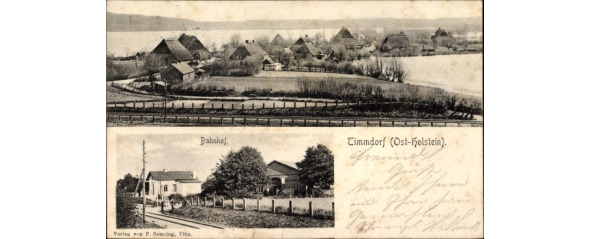
© akpool.de
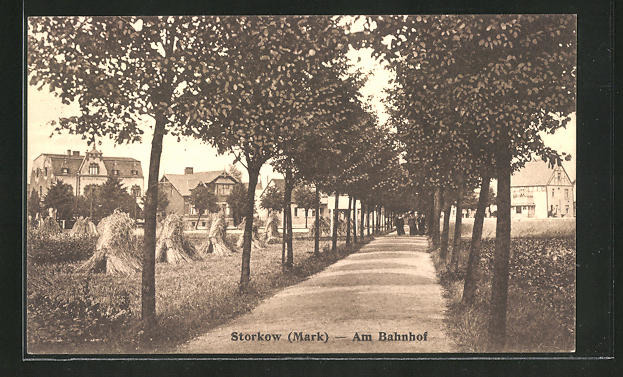
© picclick.de
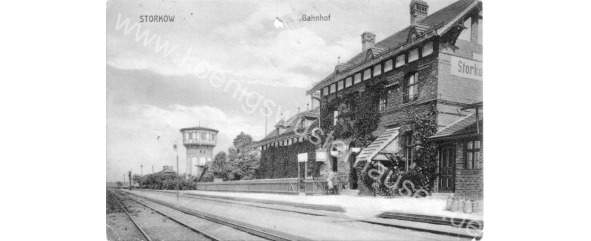
© koenigswusterhausen.de
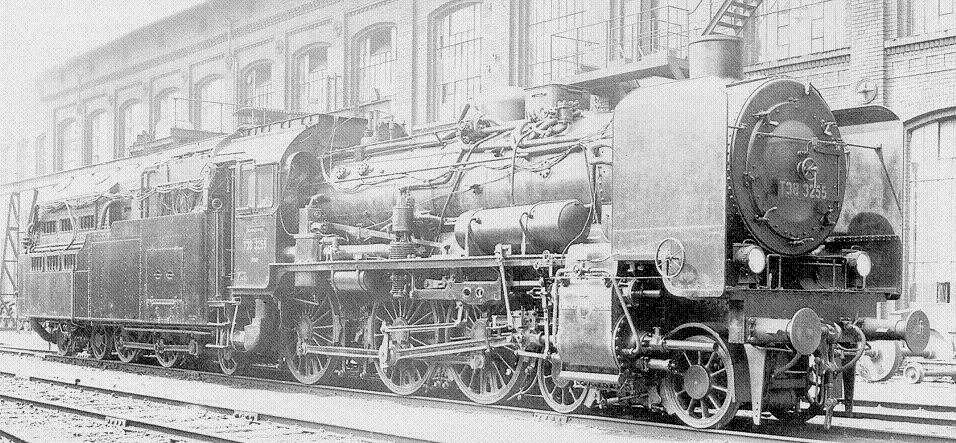
© forum.modelldepo.ru
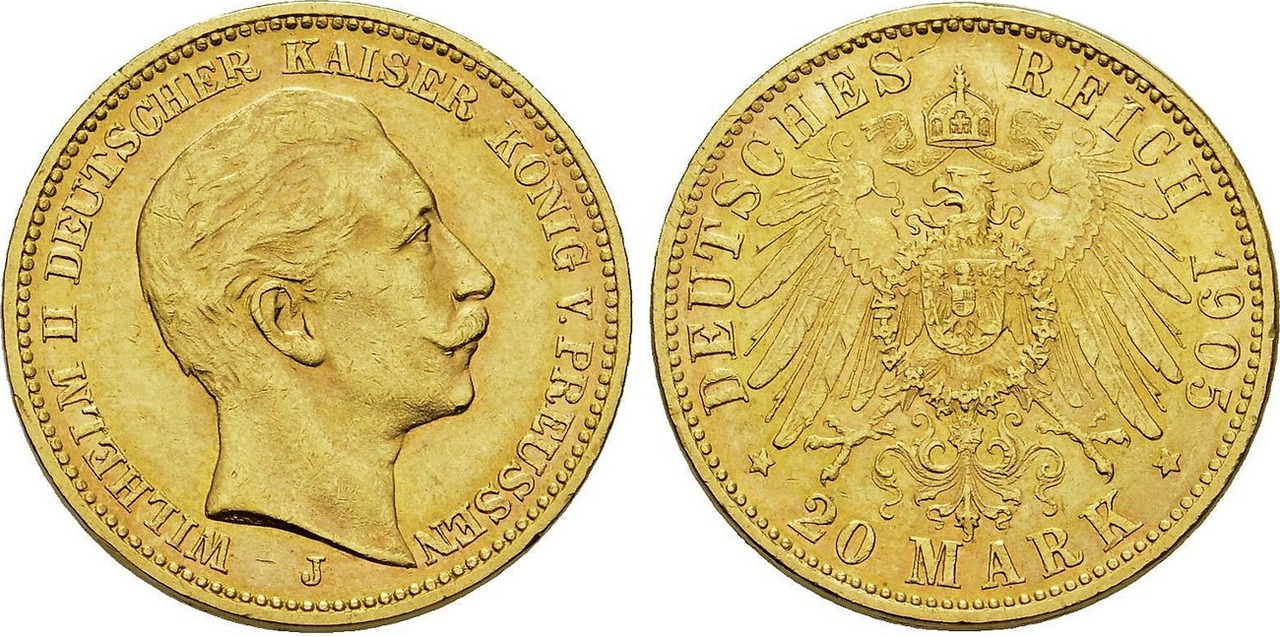
© ma-shops.co.uk
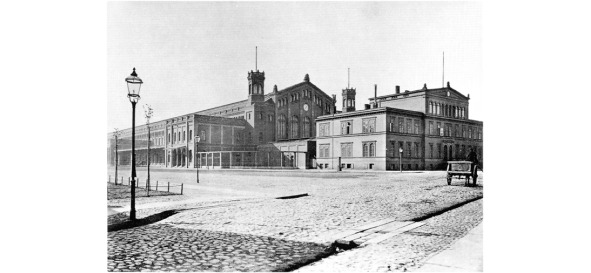
© wikimedia.org
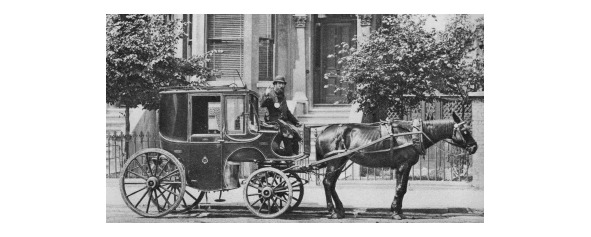
© peterberthoud.co.uk
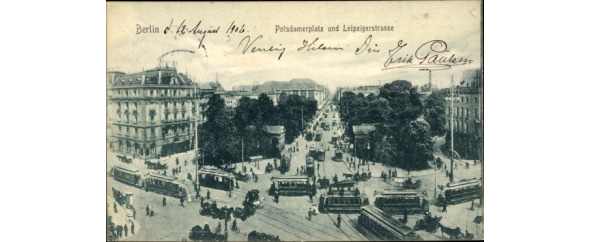
© oldthing.de
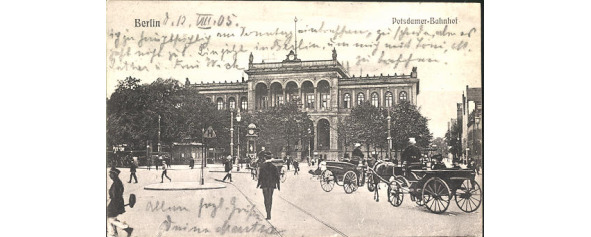
© oldthing.de
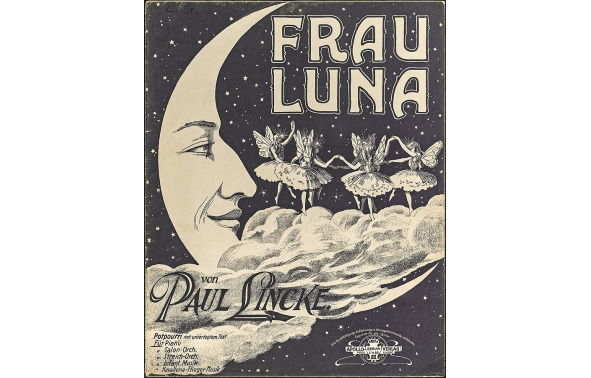
© wikimedia.org
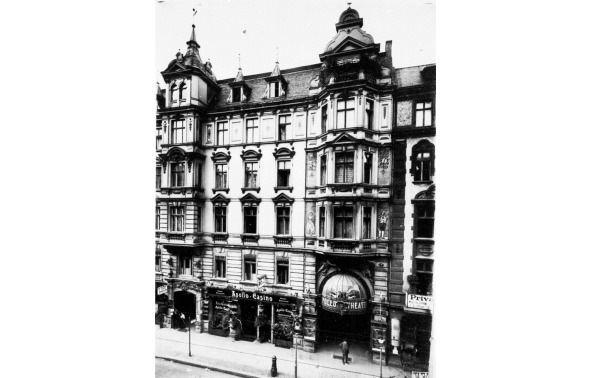
© pinterest.com
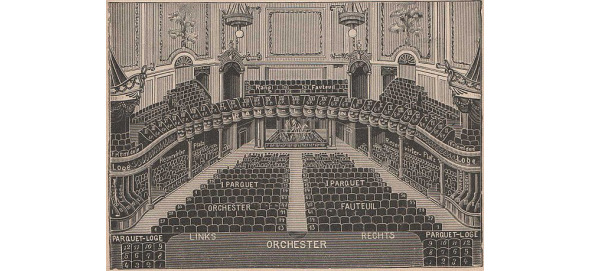
© wikimedia.org
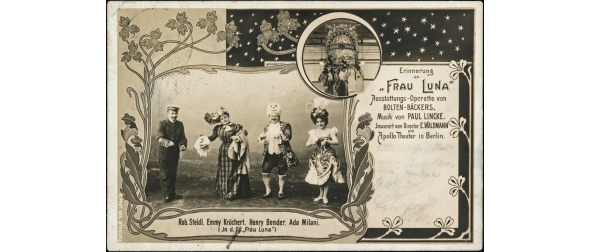
© stadtmuseum.de
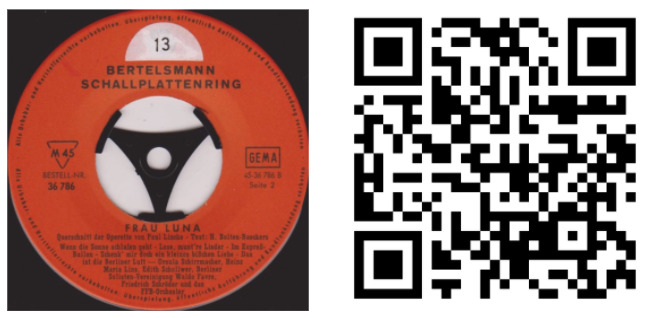
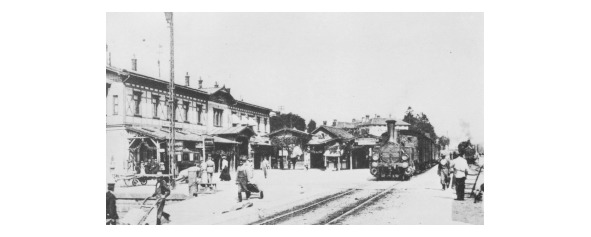
© wikipedia. org
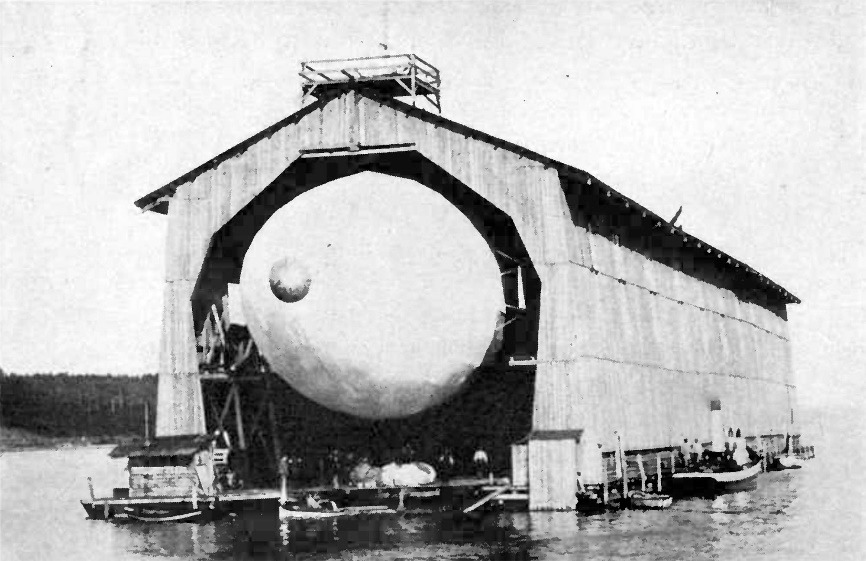
© alamy.de
Chapter 3. Count Ferdinand Adolf Heinrich August von Zeppelin
The hospital chapel was quiet except for the candles crackling on plinths draped in black cloth. The coffin was buried in greenery, it was solemn and elegant. There was a kolbak on the lid, the light shimmered on the fur softly, as if comforting. A woolen aurora cord passed through a cockade with an embroidered eagle and went down with a brush down to a stained tree. The feather sultan bristled cheerfully, as if the owner of the hat were not lying cold and insensible to the grief of the people gathered here, but was driving at full speed on his beloved trotter towards the enemy. Behind the coffin stood a white marble bust. The Munich sculptor completed it a few years ago, when people came to the aluminum plant in Lüdenscheid and the city came to life, flourished, and grew. Wreaths with mourning ribbons leaned, as if heartbroken, to hug the deceased for the last time, console and say goodbye. There was a chair next to the coffin, now empty. The widow became ill, and the sister of mercy took her away to give drops.
Zeppelin arrived at the hospital of St. John the Baptist in Bonn an hour ago. Their relationship with Berg was complicated, but strong. Common interests, the desire to make a breakthrough united these people, gradually rubbing against each other over the years, linking them with invisible ties of the need to do everything in the best possible way. Engineer, industrialist, commercial adviser to Kaiser Wilhelm II, Karl Berg plunged into the innovative theme so closely and successfully that he reorganized his great-grandfather’s button production into a metalworking holding. He bought an iron plant in Eveking, a hammer mill in Werdol, copper smelters in Berlin and Aussig, started working in the electrical industry, realized the advantages of aluminum as the best material for construction. Having learned from his Russian stepfather in 1892 that engineer David Schwartz had decided to build the first all-metal airship in Russia, Berg took over the financing and execution of the project, and delivered the aluminum frame and parts to the assembly site in St. Petersburg. It turned out, as in the saying: the beginning was not a masterpiece, and until the death of David in the ninety-seventh, Berg struggled with the implementation of the aircraft. Schwartz’s widow, Melania, turned out to be really stubborn, and continued her husband’s work. When Zeppelin met Berg in November 1897, Schwarz’s airship managed to climb four hundred meters. However, weather conditions at Tempelhof were unfavorable, and the belt drive and lack of dynamic steering were serious design flaws. Four propellers, one under the nacelle hull to lift the ship up, a second at the rear of the basket for forward propulsion, and one on each side of the hull for steering, were driven by belts over rimless drive wheels. A strong wind tore the belts from the pulleys, and the airship, left out of control, collapsed to the ground.
Berg had a contract with Schwartz under which he undertook not to supply aluminum to any other airship manufacturer. To continue the topic of airship building, Berg agreed to a meeting with Zeppelin, and as compensation for the termination of the contract, he paid Melanya Schwartz twice the amount agreed. Newspapers called it a «patent war», but there was no time to prove that the Zeppelin airship had a completely different construct.
To finalize the design, von Zeppelin discussed with Berg the design of an improved ship, and already six months later, in May 1898, together with Philip Holtzmann, the one who built the Reichstag, the count created a joint-stock company for the promotion of aeronautics. Half of the capital, four hundred and forty-one thousand marks, Zeppelin invested from personal funds. In July 1900, from a floating hangar in Manzel Bay on Lake Constance, the count managed to launch the airship LZ 1 into the sky, but after eighteen minutes, due to a trimmer failure, the first-born had to be landed in Immenstadt. Zeppelin tried three more times, in October, and, it seems, even successfully, but every time there were overlaps: either the wind would fly in, or the gas tank would flood. The transport inspector rated the prototype quite highly, but refused to consider it as a commercial or military vehicle. After this fiasco, the shareholders were reluctant to invest, or even completely withdrawn, because the company’s torment dragged on for some more time, but at the end of the same year the joint-stock company was nevertheless liquidated.
Zeppelin made the decision to dissolve the company with a heavy heart: the team had to be fired and the LZ 1 sold as scrap. Berg continued to experiment with metal. In Schwarz’s airship, he used his own alloy — aluminum «Victoria», in the zeppelin — pure aluminum. In 1903, the metallurgist Alfred Wilm turned to the Carl Berg plant with a request to test his new alloy in an industrial design. Wilm found that if aluminum with a small percentage of copper at a standard quenching temperature is first cooled sharply and then placed at room temperature for several days, then it will «ripen»: it will become stronger and stronger and at the same time retain its former plasticity. Wilm called the new alloy duralumin. Zeppelin immediately wanted to use it in the work, but a huge number of technical difficulties arose, which to this day have not been solved. Therefore, for the new zeppelin, Berg used a combination of aluminum with zinc and zinc copper. Used it but didn’t see results. In November, when LZ 2 was being taken out of the hangar and prepared for launch, a storm gust hit the airship against the wall, it fell nose into the water, both engines were torn off and the uncontrollable ship was carried right to the Swiss coast. While they were repairing for two months, Berg fell ill, and von Zeppelin spent the January start without a faithful partner.
Seven-month-old Herbert, Berg’s youngest son, hummed in his nanny’s arms. The eldest daughter Helen blotted her tears under a black veil, her husband hugged her by the shoulders and whispered something soothingly. The face of Berg’s son-in-law, Alfred Colsman, was intelligent and slightly pockmarked. The head was adorned with the first bald patches, and the face was famously twisted mustaches. He was a head taller than the Zeppelin who sat behind the family in the hospital chapel. The count recalled the last conversation with Berg, which resulted in a fierce argument. The owner of the concern made it quite clear that he wanted to play a leading role in the development of airships. Zeppelin, for obvious reasons, did not like this situation. Nobody wanted to retreat, but both understood that without each other their cause would not move forward. Berg had industrial possibilities, Zeppelin had his own inventions and incredible energy. Pedantic and courageous, both with a baggage of incredible ideas, they were careful with each other and at the same time they were mutually attracted. With whom to do business now, Zeppelin did not know. The count listened to the crackle of candles, stared blankly at the coffin in which his partner rested, and wondered if he was now saying goodbye to his own dreams…
The next day, they were already buried in Lüdenscheid, in the Berg family tomb. The funeral home delivered the deceased there in a hearse, the family and relatives returned from Bonn in the evening. The high May sun shone joyfully through the greenery, as if mocking the grief of the people who were walking in a mourning column. Everything was black: black horses, a lacquered carriage, a coachman in a coal camisole, men’s hats and weightless mourning veils, only the scarlet velvet pedestal under the coffin hurt the eyes, wreaths of burgundy roses, and red bandages on the horses’ legs. The family crypt is located in the Protestant cemetery on Matilda Street. From the entrance we went to the left for another hundred steps. Mrs. Berg’s legs gave way, so her son-in-law and a stranger in a monocle, unfamiliar to Zeppelin, held her by the arms.
When it was all over, they slowly made their way to the exit. At the gates of the graveyard, the count approached the family, once again expressed his condolences. He recalled for a moment his son-in-law, towering over the drooping women like a pillar, introduced himself.
— Mr. Colsman, I apologize that I am addressing you at such an inopportune moment. Your father-in-law and I had something in common…
«Yes, Count,» Alfred nodded, «I know.
— Until it is announced who will conduct the business of the company, I will have to freeze work on new samples. All I ask is that you inform me of the family’s decision when a manager or a new CEO is appointed. The Zeppelin handed Colsman an address card.
— Father-in-law asked me to head the concern. The aluminum plant in Verdol, which is part of the holding, belongs to me. Got it from my father. We talked with Berg in the hospital, discussed plans. He knew that he was dying, so he called the executor and made a will. If you give us some time to get the family affairs in order,“ Colsman nodded briefly towards the ladies, „I will study the project documentation and contact you.
— Will wait.
The Zeppelin shook hands with Alfred Colsman and departed for the station.
* * *
Six years ago, when the property of the joint-stock company was put up for auction in connection with bankruptcy, the only way to save the project was through personal investment. Zeppelin had no choice but to acquire a plot of land donated to the joint-stock company by King Wilhelm II of Württemberg, hangars, all workshops, machine tools and even the airship itself. The faithful Dürr bought the rest. Ludwig Dürr von Zeppelin met at the design office of the German Association for the Promotion of Air Navigation, he was still a student at the Higher School of Mechanical Engineering in Esslingen am Neckar. The mind and loyalty of this man conquered the count, and at the time of the collapse, it was Dürr who remained the only employee of the company — to lose him for Zeppelin meant betraying his own ideals. There were times when a designer worked without insurance or even a salary, lived in a hut on the lake, worked in the most Spartan conditions. Dürr never doubted his boss. It was then that he showed the count his own development — an innovative light-type design, which became the basis of all future Zeppelin airships.
Now the ship had two Daimler 85-horse motors that drove four three-bladed propellers, the keel became more stable, and the two elevators had a larger coverage area than the LZ 1. To reduce gas permeability, two cotton sheets were taken for the shell, between which laid a layer of rubber. The design was divided into sixteen compartments and the frame system was improved.
On the launch day, January 17, there was a strong wind, and the airship could overcome it if it had time to rise above 450 meters. The ship reached a four-hundred-meter height, and then the gust first damaged the side rudder, then the Zeppelin realized that at first the right engine turned off and did not respond, and then the fuel stopped flowing to the left. It was not easy to land a 128-meter ship between the mountains in the Allgäu: the count released gas from the chambers, anchored right in the field, the gondolas hit the frozen ground and the airship hull fell on them. Farmers came running, pulled Zeppelin and Dürr out of the cabin. They dragged heavy stones from the nearest mountains, fixed instead of the anchor torn off by the wind on the bow and stern of the airship. This killed him, but who knew. At night, the wind turned into a severe thunderstorm, and the fixed ship shook so that the shell was almost completely torn off, and the engines and frame were dented into rocky ground, so the only thing left to do was to give the airship for remelting.
The despair did not leave for a long time. For the first time, few followers of Zeppelin saw him in such a state: ready to give up what he loved. Here, too, the newspapermen seem to have broken the chain. Two devastating articles by some Eckener appeared in the Frankfurtskaya at once: on January 19 — «A New Attempt to Travel by Count Zeppelin» and the next day — «The End of the Zeppelin Airships». And the most unbearable thing is that this hack was right about almost everything. The Zeppelin threw the paper on the table, twirled his mustache angrily, and thought about what to do. Did what he always did. I talked with Isabella, she pawned some of the jewelry, the count added his own, and the family capital decreased by another hundred thousand marks. The Kaiser and the War Ministry once again turned their backs on the failed eccentric. Only the sovereign, the king of Württemberg, continued to believe in the count and covered the Zeppelins with another money lottery for a loan for new construction. Perking up and remembering the army past, in one of the conversations with his comrades-in-arms, the count decides: «In the name of God, let’s start from the very beginning.» And they started.
What could be used in the work was carefully removed from the broken LZ 2 and poisoned by horse-drawn transport to the shipyard. Dürr built a wind tunnel and offered to test the LZ 3 prototype first in it. So they found out that the tail unit of the new model stabilizes the ship in the wind — now the airship has ceased to look like either a soaring cigar or a flying sausage and has become a huge silvery fish that is about to set sail on the heavenly ocean. Dürr methodically examined the various materials for the shell for rupture, tested their extensibility and gas tightness. He systematized the efficiency of various types of propellers, analyzed the operation of the steering, measured, recorded, recalculated.
One evening, Isabella showed her husband a newspaper — Eckener wrote in another note: «What a big and strong man, how great and strong is the human heart, which defies all forces on earth.» The Count, out of habit, frowned as he read, then a smile appeared in his mustache. He looked at his wife questioningly. Sixty-year-old Isabella, stately, with graying hair styled in an intricate hairstyle, knowing everything silently looked at her warrior, and waved her hand. Still won’t settle down. So the Zeppelin team got another follower. It turned out that Eckener had moved from the north to Friedrichshafen and worked as a freelancer. The count visited the journalist at home, talked with him about problems, including constructive ones. It turned out that Eckener was not just a journalist, but a scientific consultant in the newspaper, which is why he was an extremely technically savvy person: he gave sensible remarks to the count and offered reasonable alternatives. Hugo began to periodically visit production and help in any way he could: he wrote articles in defense of the new project, urging fellow citizens to provide all possible assistance in the development of aeronautics.
In the middle of summer, a letter was brought directly to the shipyard. The inspired girl wrote about how important what Zeppelin was doing and asked for a job. The count did not have extra money for an assistant, so he put the letter in a frock coat, and forgot about it. A couple of weeks later, Isabella discovered him when she was collecting things in the wardrobe for cleaning.
— Dear, what kind of papers do you have in your coat?
The Count looked up from his workbook, in which he sketched either new propellers or improvements to the airship frame.
— Papers?
Well, here’s the letter. Isabella held out an almost uncreased envelope. Zeppelin twisted it, saw the postmark: Storkov.
— Aaah! It’s even funny, you know. Some high school student is asking for a job. I love, he says, the sky, and you only deal with it. Let’s work together, I agree, they say, to any job.
And again bent over the notebook. The wife looked at him attentively, as if waiting for the continuation. But the count was already carried away, drawing selflessly, so that the ink flew.
— What about you? she hurried, waiting for the denouement.
— What about me? The Count looked up from his papers again. What do I need an assistant for? And what should she pay?
«Ferdy, sometimes you can’t see beyond your own mustache!» You said she was a high school student. So she can pay the minimum wage. Mrs Schaefer in her atelier pays seamstresses ten marks a week. I think it will be clear from the skills of the assistant, but you can start with five. For now, she will live in the barracks, there are rooms. Will eat with everyone. You are sixty-eight years old, how long can you run to the telegraph office yourself?!
«And what, I’ll only pay her five marks for the telegraph, my dear?» The Zeppelin was starting to get amused by this situation. Isabella rarely insisted on her own, and now he did not understand why his wife was so muffled.
The wife raised her eyes to the ceiling, expressing with her whole appearance how close the one with whom she is talking:
And for the telegraph. And for a hot lunch. And for all documents. I have not forgotten how you wrote those ten thousand letters all over Germany asking for help. God! Ten thousand! It still gives me the creeps. Let him put in order what you do not have enough time for. Headquarters, in the end, it’s time to open! You want a serious relationship, but you take ministerial officials to the hangar or to our house. Is this your level?
— Bella, the airship should have the proper level, not the room.
«It’s not for nothing that people say that clothes make a man. When will you realize that officials need an appropriate reception? If your ship were at least a thousand times better, the transport inspector would not invite the minister here, and he would not invite the Kaiser.
Zeppelin put down his pen, pushed back his notebook, leaned back in his chair.
— Well, let’s assume that I heard the arguments. Why do you really want me to take it? His eyes were laughing.
Isabella sighed, picked up the selected linen, crossed the room and reached for the doorknob.
«Because this girl has not been repulsed from dreaming.
The count looked at the door closed behind his wife for a long time, thinking about something. He pushed the papers towards him and picked up a pen. Sat, looking at the drawings. Painted a bird.
* * *
A week and a half has passed, and now a girl is standing on the pier. While he was walking, he examined with far-sighted eyes: tall, with a face resembling a fox, blue eyes squint from sparks on the water, barely noticeable freckles scattered over a sharp nose, small shadows lay under the eyes — it is clear that she was tired from the road, blond hair got out from under the hat. It is obvious that he is worried. For some reason, there is not enough luggage. Okay, let’s figure it out.
Approached the future assistant.
— Good morning, Miss Osterman. Ferdinand von Zeppelin at your service. Shall we start?
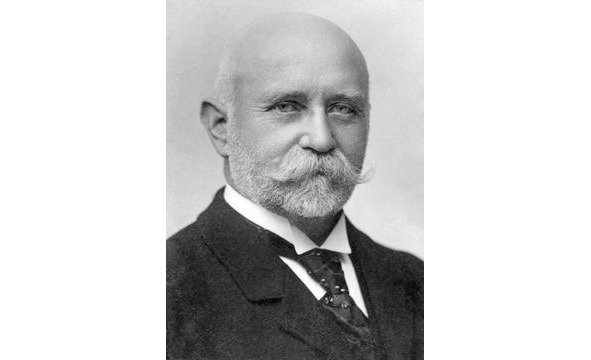
© leo-bw.de
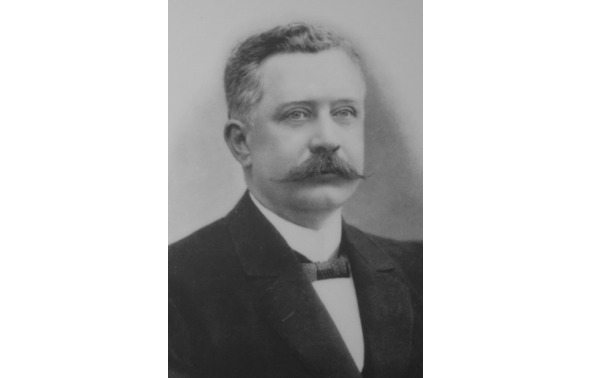
© wikimedia.org
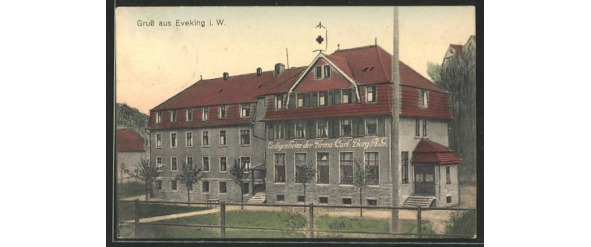
© oldthing.de
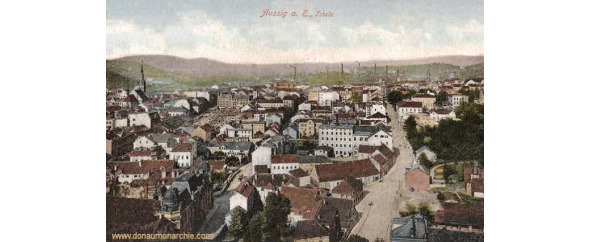
© deutsche-schutzgebiete.de
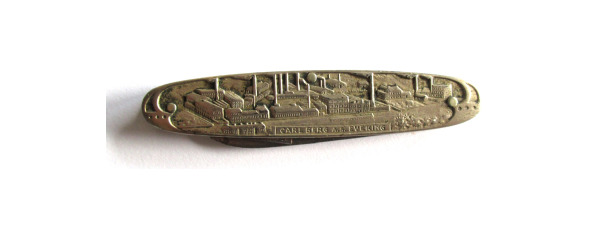
© M.-A. Trappe
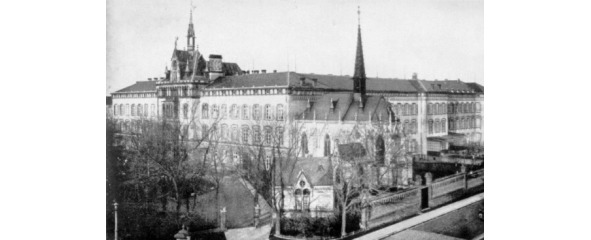
© walthertree.com
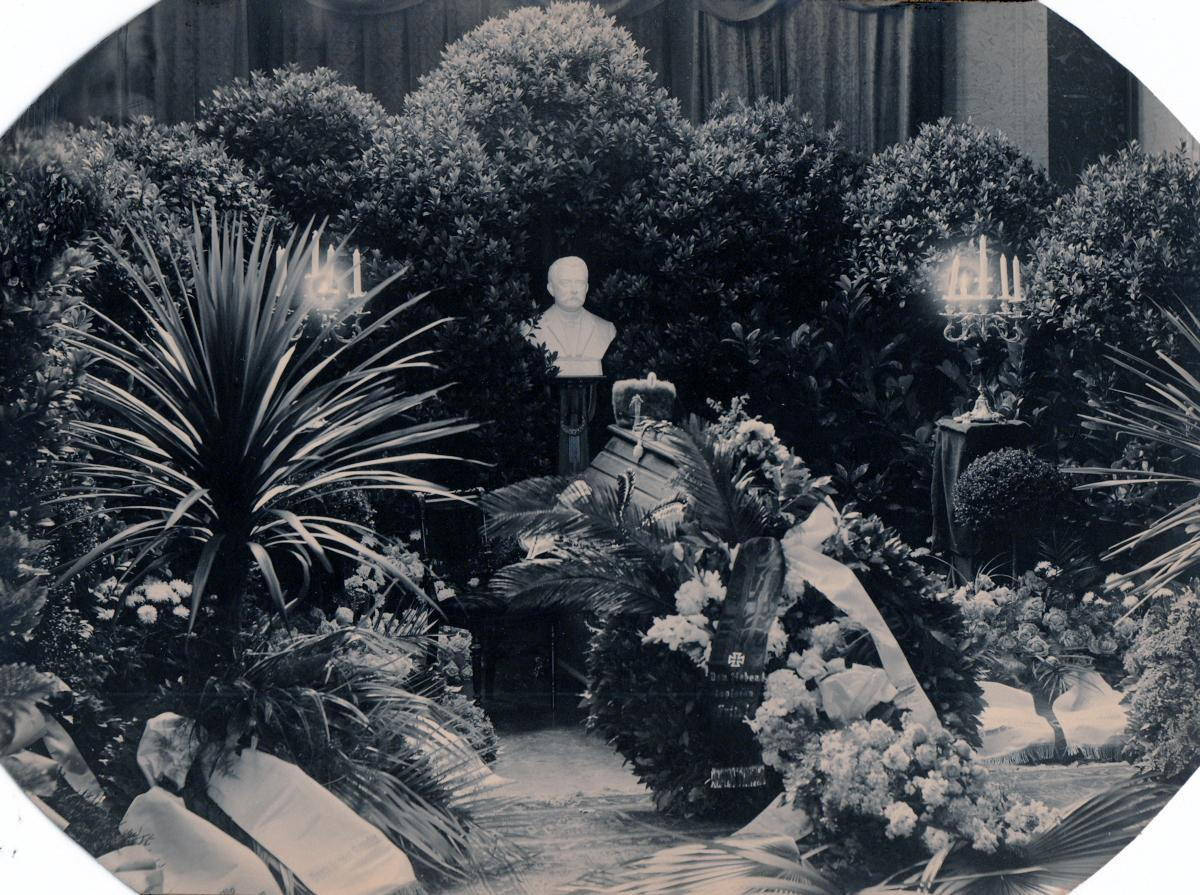
© museum-digital.de
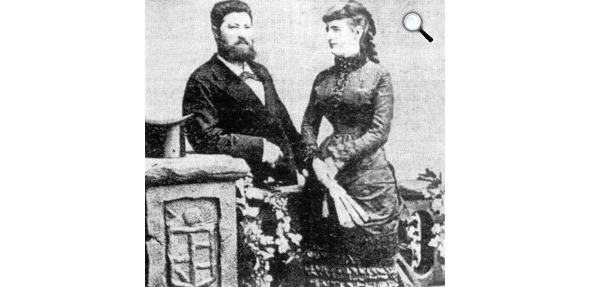
© cultura.hu
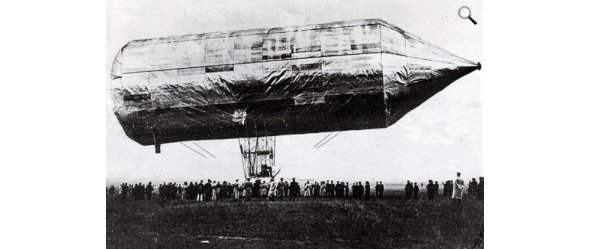
© cultura.hu
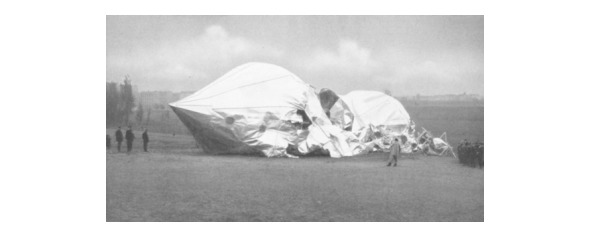
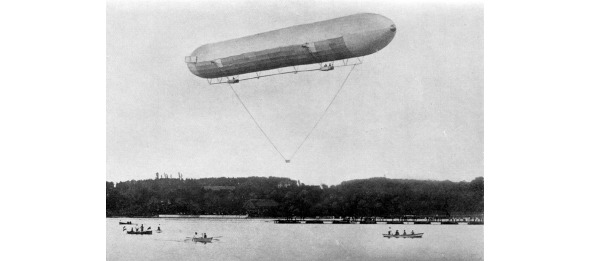
© evenimentulistoric.ro
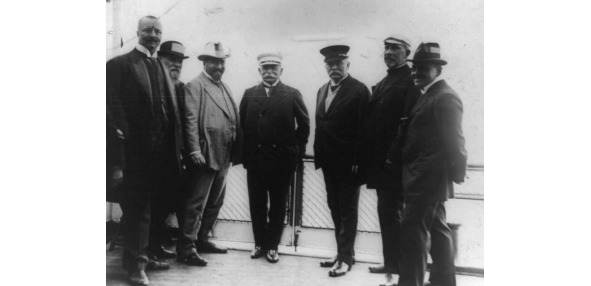
© rasmusdahlberg.com
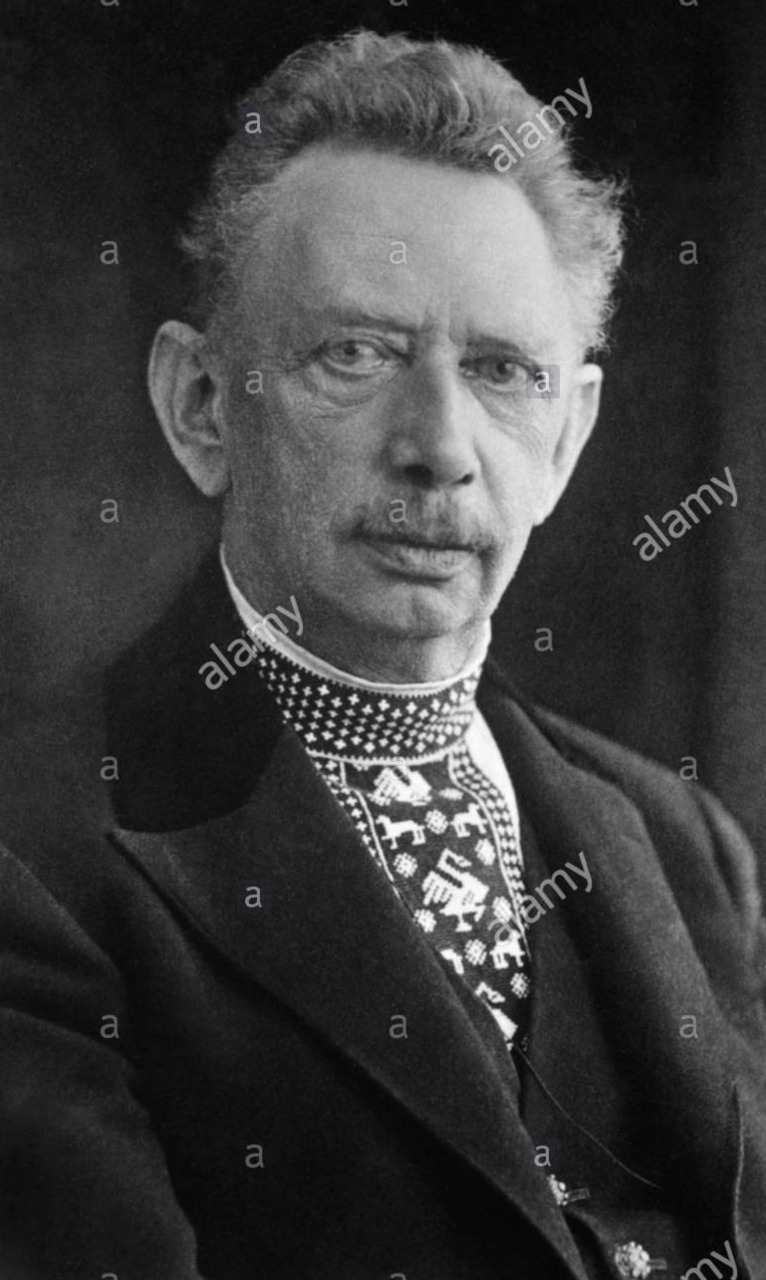
© alamy.com
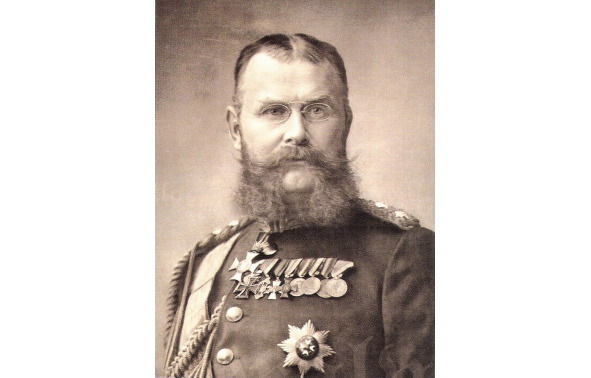
© wikimedia
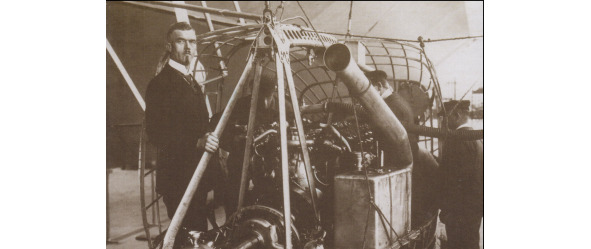
© philmaster-shop.de
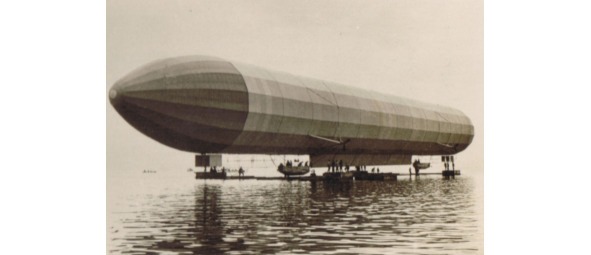
© wikipedia.org
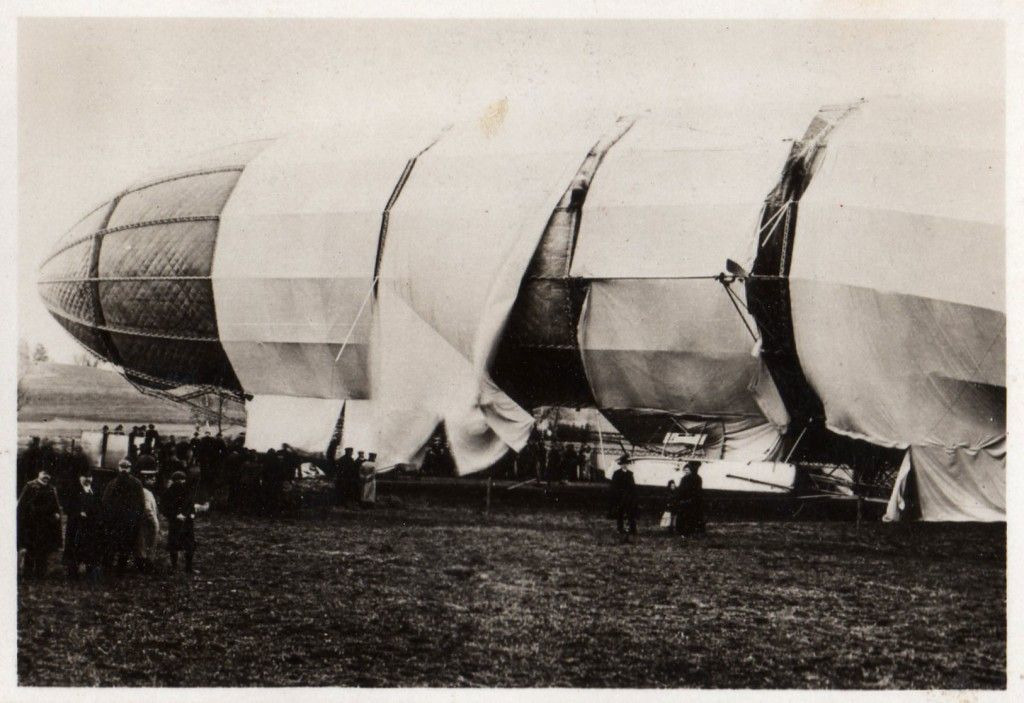
© welweb.org
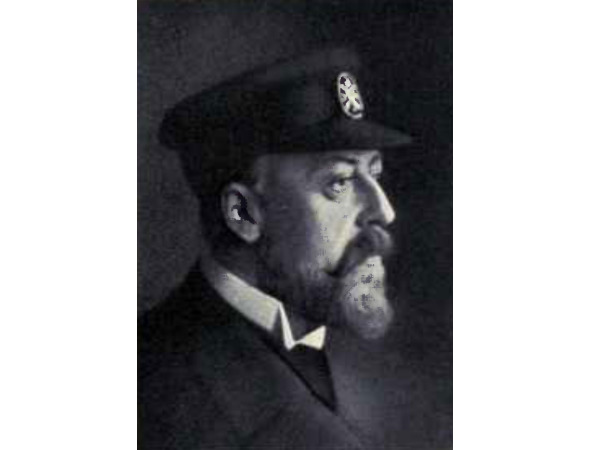
© airship.net
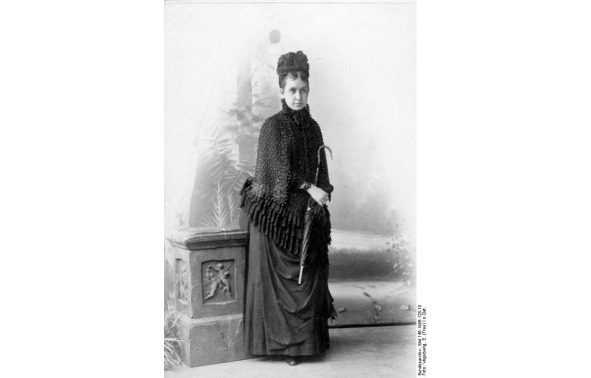
© wikipedia.org
Chapter 4. Start
Every morning Jacob waited for the postman. Emma’s departure went smoothly, as if she had never lived here. The seats in the dining room have now been moved and the table has become more free. Mom was still the same detached, only occasionally went out to the church, then to the watermill, apparently, to walk along the alleys marked with the first yellow strokes, and watch the swans on the canal. Dad began the school year, the boys plunged headlong into classes, the twins went to the first grade, and the older brothers frightened them with their thick textbooks and the number of disciplines. Emma’s room was empty, no one dared to occupy it, as if they knew that she would return. Only three people in this house thought about Emma every day, although they didn’t show it and didn’t discuss her departure among themselves. Vilda received a letter from the girl and in the evenings, having put the boys to bed, she collected her things. Father came into the room occasionally, as if Emma had died, and he did not want to open the wound. He will come in, look out the window, stroke the spines of books, a chest of drawers with his finger and go out. Sometimes Jacob watched his father through the boy’s open door. He himself was in his sister’s room almost constantly, inhaled the familiar smell, climbed onto the windowsill and watched the rare people on the street. It was as if Jacob’s hand had been cut off, he could not explain this longing to himself: Emma was always with him, when he still did not remember himself. He knew that sooner or later it would happen, and the later Emma left the house, the more miserable she would become. But then she left — and made him unhappy. He did not want to fight this pain, it filled him and in some strange way gave him the strength to live, like a bitter potion that squeezes out the disease from the body. Therefore, every morning he opened his eyes, listened to the snoring of his brothers, quietly crawled out from under the covers and, right in his pajamas, moved to his observation post opposite — to Emma’s room: from her window, the alley from where the postman came was clearly visible. There were still no letters, Vilda looked at him every morning and with a stone face ordered to get ready for school, and her words resembled some kind of endless ritual. Weeks succeeded each other, September came to Storkov, and Jacob withered and withered like an autumn leaf.
He spent the next morning at a combat post. Not expecting anything much, Jacob thought about the fact that today is his birthday, another meaningless date that promises nothing. He rested his chin on his knees pressed to his stomach, watched the shadows from the lindens slowly crawl from stone to stone along the cobbled pavement in the alley, listened to the creaking of the house and waited. Through the open window, one could hear Anna rattling dishes downstairs, who came to the kitchen still dark, checked stocks, collected food for breakfast, took milk bottles, eggs, a large slice of cheese, jars of jam and a round porcelain butter dish with a painted on the side of a piebald cow. Vilda entered the room, silently froze in the doorway. Without taking his eyes off the alley, Jacob hooted, now, they say. The nanny went up to the boy, stroked his curls, and held out a thick blue envelope. Emma’s calligraphic handwriting read «Happy Birthday!».
— Happy birthday, Jacob.
The boy’s face took on a strange look, he somehow inhaled convulsively:
— But where? The postman hasn’t come yet, I would have seen.
Vilda adjusted the wrapped lace cuff on the sleeve of her dress:
— Emma sent back in August, along with a list of things. She asked me to hold it until the 5th. She was afraid that later she would turn around or the mail would be delayed, so she wrote a letter in advance.
Jacob was dazedly clutching the envelope.
— Let’s not break traditions: don’t stay too long, it’s time to get ready for school.
And she came out, a treacherous woman.
The birthday boy carefully placed the envelope next to him, slid down from the window sill, and limping through the room, closed the door. Returned to the observation post. At the same time, he was choked with joy at the fact that the letter was here, that he had received it exactly on his birthday — is it possible to make a better gift, and at the same time some strange anger at Vilda: was it really difficult for her to say that the letter had already there is so that he does not sit on this stupid window sill like an idiot for so many days? Was it really that interesting to watch him suffer? Undecided about his feelings, Jacob took an envelope from the window and sat on the bed: now there was no longer any need to sit his ass on the windowsill.
Dear Jacob, my dear brother! Hello! Happy Birthday! What a pity that I will not be with you on this day, that I will not put fifteen candles in the birthday cake and the sixteenth, red, in the very center — for good luck. It’s a pity that we won’t whisper with you after dinner, we won’t open presents together. I hope you will forgive me for my silence, here there really is no time to sit down for papers. Although I’m lying, I sit behind papers a lot, but everything is behind the workers — the count conducts a large correspondence on construction. I only go to my room to sleep and change my underwear.
They settled me in the former barracks, it stands not far from the shipyard. There are few workers at Zeppelin, mostly locals, but there are also visitors. Living rooms were arranged on the second floor, and an office on the first. And the way the office — until I arrived, the count spent days in the workshops. And since my task was to organize some sort of life around him, the first floor was settled, offices were made there (so far, however, all are empty). On the first day, the count showed me where he was, even drove me around the city so that I could understand where the shops were, how to return to the pier. The city is quite small, although there are many vacationers from Switzerland here — a ferry runs across the lake from there. Zeppelins live on the other side in a small castle.
The count is exactly as I saw him in the papers. When he starts talking about the new airship, he gets so carried away, as if he was throwing off ten years. He has some unusual eyes: even when he just listens, it seems that he is smiling. He has an incredible supply of faith in his own strength (although Mr. Dürr said that he himself was a witness to his despair) and ideas. Sometimes it seems to me that there are no unattainable vertices and impossible tasks for a graph. There are difficult ones, but there are no impossible ones. He is like a drathaar: small, strong, and as soon as he hears something about the possibility of improving the ship, he stands up. He is already one of those old cops who have been on more than one hunt, have seen hares, and raccoons, and foxes, and even wild boars. He has been beaten by other hunting dogs, but his scent is still delicate, and his eye is keen.
By the way, about Dürr. Mr. Ludwig works for Zeppelin as a designer and lives at the other end of the corridor. True, I saw him in the corridor only once, he almost always works at night. I don’t know when he sleeps or if he sleeps at all. This Ludwig is ten years older than me (although you men don’t understand the age), and his eyes are so blue that they seem transparent. Fu, it’s annoying. Dürr is always busy and does not even look in my direction — he probably does not like me, or maybe he thinks that I will be indulged. He spoke to me only twice during this time: the first time, when I was waiting in the Count’s workshop, Dürr explained a little about what his work is. The second time we ran into him in a shop and went together to the pier. It was then that he told how Zeppelin experienced the loss of the airship. I have no idea why he talked like that then.
The journalist Eckener also comes to visit us. Very interesting sir! It turns out that at first he wrote devastating articles about Zeppelin (imagine, one of the biggest taunts is something like «now it’s clear how this thing will fly — it would be windy»! It was he who rode in the address of poor handling! horror!), but the count really turned out to be a noble hunter: he adapted this drake to business (I laugh). It happens that Eckener sits with Dürr in the workshop, discussing all sorts of difficult issues. I don’t understand anything about this yet, for me their conversations are like bird language. But in ordinary life, I liked Mr. Eckener: he has broad views on many issues and rather subtle humor. You know, brother, how I love smart men! Unfortunately, I can still look decent with my luggage, but I won’t be able to be stunningly beautiful. I can’t wait for Vilda to send all my stuff.
Door opened. Jacob jumped up on the bed in surprise. The father entered the room.
— Happy birthday, son. It’s time to get dressed and have breakfast, — I saw the papers in my hands. Is it from Emma?
— Yeah. She sent Vilde along with the previous one. Jacob twisted his mouth in displeasure.
«Wow, Vilda didn’t tell me. Well, how is she doing? Ove did his best not to show how hurt he was by the absence of letters from his daughter.
Everything seems to be fine, I haven’t finished reading it yet. A little left, dad.
— Well, read it and go down. There isn’t much time left.
Ove patted his eldest son on the shoulder and left the room, quietly closing the door behind him. Jacob calmed his pounding heart and nearsightedly brought the papers closer to his eyes.
The count often works with them, so I constantly run to the workshop with papers, then with snacks. The team really has no time to eat — they are assembling the LZ 3 frame. Ah, Jacob, if you could see this miracle! I think I forgot how to breathe when I first saw the airship. It has only recently begun to be assembled, but already now it looks like a giant lacy boat. Even from the shore you can see how the aluminum tubes shine in the sun, as if they are burning from the inside. I will try to sketch for you next time how everything is arranged here. Of course, most of all I dream that after test flights the count will allow me to take off with the team in the air (I write and even screwed up my eyes with happiness). Imagine me in the sky!!!
The count pays his salary carefully, five marks a week. He said that if there were no comments to me by the end of September, he would raise it to six, and from January to eight. So calm down dad, everything is in order with the money, there is enough for food. How are you? How are the kids? Tell your parents that I’m fine. I will write to dad later, probably in September: there is a lot of work — the count wants to have time to raise the airship before the winter winds. Write to me at the von Zeppelin workshops, Manzel Bay, Friedrichshafen, Baden-Württemberg. I hug you tightly, my fifteen-year-old captain! With love, E.
— Jacob, quicker! — Vilda’s voice came from the nursery: apparently, she was urging other latecomers as well.
— Yes, I’m coming! — The birthday boy was even more offended by the behavior of the nanny, hastily folded the letter, smoothed out the wrinkles after himself on the bedspread and limped to the exit.
Because of a bad knee, Jacob had to go to school with a margin for respite and stops, and you just don’t scatter too much when your leg is constantly aching. It took the brothers ten minutes to run to school, so they usually left the house later; Jacob, on the other hand, needed about half an hour to calmly walk, and on bad days, when the joint was torn from the inside from pain, all forty — forty-five. Today was a good day, the nagging in the knee was familiar, dull. The cane landed on the cobblestone pavement with a soft thud at regular intervals, the shoulders were pulled back by the schoolbag. To free his son’s hands to change the cane, Uwe sewed shoulder straps to the briefcase. Sometimes Jacob was too lazy to put on the knapsack as planned and dragged it on one shoulder, slumped a little under the weight of textbooks. Today he took advantage of his father’s idea to the fullest: unloaded his hands to reread Emma’s letter on the way. Thoughtfully buried in a leaf, Jacob walked past the forge, where in the huge open doors one could see various horse grits, the sound of files undermining hooves, snorting and tinkling of harness was heard, turned a corner and passed a tobacco shop, from where the sweet plum smoke of cigars was smelling. Running his eyes over familiar letters forming lines and paragraphs without looking up, Jacob followed a familiar route: he didn’t have to look around to know where he was. Smells, sounds, soft waves of the pavement led him as well as sight. Without taking his eyes off the letter, Jacob moved across the street to the school fence.
«Where are you going, you fool!»
A horse’s head loomed over Jacob like a huge shadow, behind which flashed the face of a cab driver, white with horror, some woman on the sidewalk screamed in fright.
* * *
— It’s coming! The mouth is open! Don’t look around! Stop, Gretchen, — The coachman, jumping down with lightning speed, calmed the mare, who, bulging her eyes, backed away. «What if she trampled you!» They are born idiots! Quiet, darling, quiet… Stop screaming, you fool! — turned to some woman on the sidewalk, who was screaming so loudly that Gretchen began to foam from her mouth with fright.
Dürr stared in amazement at the carriage that appeared out of nowhere, a mare squinting terribly at him, a cabman with shaking hands, shouting something right in his face, a crowd of onlookers gathering near a screaming woman.
— Excuse me… I thought about it.
The shock played into the hands and with an absolutely calm face, Ludwig walked past the shut-up woman, strangers, walked another fifty steps to the nearest bench that faced the lake along the entire length of the alley, fell on it and closed his eyes. It’s no good. We need to focus on work. It is impossible to live in such a state, when extra thoughts come into your head every now and then. Where did she just come from on my head!
Dürr bent over, grabbed his poor tortured head, squeezed it in his hands and closed his eyes. Genuinely intelligent and emotionally flexible, he never wasted energy or wasted time on impractical matters. Having met the Zeppelin, Dürr was finally able to work on his own dream, so he did not allow anyone or anything to get in his way. Ludwig considered self-discipline and organization to be his main virtues. Once. Before. Until the twelfth of August.
A cold head and a technical mindset did not allow Dürr to believe in love, especially in love at first sight. He was an adult and experienced man, he knew women, but what happened to him at twenty-eight years old was impossible to predict. One look at Emma was enough to make Dürr’s heart stop, and then it began to pound so that the movement of blood could be heard in her ears. Her voice introduced Ludwig into some kind of unhealthy stupor, when he could not squeeze out a sound. The palms were sweating, the fingers were trembling and it was good if there was somewhere to hide them. Once they collided in a shop and until the very exit, until he grabbed a bicycle handlebar in the street, his hands shook treacherously, as if Dürr was a decrepit old man. Ludwig was a comprehensively developed person, he also read medical research, he knew that a few years ago, following the British, Otto von Furth isolated the active substance suprarenin from the extract of the adrenal glands, which can quickly increase blood pressure and heart rate. Ludwig was not a naive fool, not at all, he understood that this was not love at all, and certainly not love at first sight. It’s all him, suprarenin. As soon as the level of the substance in the body decreases, Ludwig will be able to live and work normally. But the realization of his own rightness did not bring any relief, and every time Emma ran into the workshops, Dürr was sweating, shaking and rapidly losing his vocabulary. The nights did not bring any relief: it was covered with hot, forbidden, and spinning in your head, as you press a hot body into wet sheets and look, without looking away only into your eyes. And Emma — here she is, sleeping at the other end of the corridor. During the day, he will either wave from a distance, or nod from behind his bureau, or invite him to a glass of apple shorley. I had to work all night or stay asleep in the workshops, crouched right at the table. Work, of course, distracted, but fatigue dulled attention. And now he did not notice how he stepped right under the horse’s legs. In a word, Ludwig Dürr got stuck and got stuck firmly.
Of course, the changes in Dürr’s behavior did not hide from the count, he even thought about talking to Theodor Kober, who worked for Zeppelin several years ago as the first designer, so that he would drop in on Ludwig and look at the process: as if Dürr was in a love fever of something important didn’t miss. But still, the devotion and faith that the young man showed in the worst times for the company did not allow the count to chop off all the past merits of his engineer like this in an army way. Nothing, there is time, he will soon let go, Zeppelin consoled himself, although, of course, he did not take his eyes off this strange couple. Emma turned out to be diligent and the count no longer felt regrets that Bella forced her husband to take an unfamiliar girl to work. With the advent of the assistant, things went smoothly, and on especially good days, Zeppelin called her Miss Emfolg1 jokingly. She communicated evenly with Ludwig, did not build her eyes and, it seems, did not even notice at all that he had moved a little in his mind. The count, after all, had already lived enough and concluded that, firstly, Emma had not yet seen Ludwig unmoved and, quite likely, thinks that he has always been like that, and, secondly, it seems that she did not pay attention at all, how the poor guy’s face changes when she’s around.
Be that as it may, work on LZ 3 was in full swing. Back in mid-June, a letter came from Colsman that he would continue work on the project started by the late father-in-law and finance the manufacture and shipment of the entire construct for the future airship. The technical director of the Daimler factories, Wilhelm Maybach, was working on a new pair of engines capable of speeding the ship up to eleven meters per second. Dürr in his foundry made to scale models of a 128-meter zeppelin with various modifications of the tail fins and tested their handling in a wind tunnel. Emma rewrote endless drafts of appeals that the count made, kept a cash account for all the estimates that she found on her desk, checked the freshness of food in the working kitchen, where permanent and temporary workers ate, ran around the city with small assignments, and even began to collect a working library with reference books, scientific journals and an archive of the company’s own drawings. Here and there on the streets flashed her figure, tightly cinched at the waist with a belt of an amethyst skirt, in a blouse with puffy sleeves, with a wheaten braid hitting her back from hasty walking under a straw hat.
The frame from Lüdenscheid was sent over a month ago. Dozens of huge boxes were first transported from the station to the pier in Manzel Bay, where the workshops stood, and from there they were transported by barge to the boathouse, in which Dürr began assembling trusses. The wooden pontoon hall for assembly was anchored six hundred meters from the shore. Like the mythical fish Yaskontius, the floating hangar snarled from the surface of the waters with its black square mouth. The barge «Buchhorn» brought loads to this hole, clung to the bollards with cables and gave up its burden like a sacrifice. Each of the one hundred and forty-two meters of walkways along both walls of the shed was lined with tools, machines, some kind of locked boxes, rings of ropes, cables and chains hung on the walls, tons of percale rested in bales in dark corners, dozens of ladders of different heights lay on their sides in waiting for the right job. The diameter of the airship was more than eleven meters, and in just a couple of weeks its hull bristled with these stops along its entire length. The entire space of the hangar was occupied by the openwork of half of the frame, divided into the embryos of future compartments, in which the cylinders would later be placed. Workers hung like small ants on this silvery skeleton, riveting new bones to the heavenly monster.
Red-headed divers darted busily near the floating hangar, to which boats clung from all sides. Brown grebes peeped out of the coastal reed beds, having lost their majestic crowns and collars by autumn, watched how the ship’s loaders unhooked the straps from the boxes, how the barge started off, how people ran and waved their hands in a distant shed on the water. Gray perch peeped out of the water, flashing their scales in the sun, moving their lips, grabbing some overlooked trifle from the surface and leaving to the depths, away from the noise. The waves of Lake Constance swayed lazily, a warm wind stirred the leaves of rose bushes in city parks. Magnolias for some reason suddenly decided to bloom again and stood under the hot September sun, as if smeared on brushes with oil: pink, white, purple…
In the coolness of the boathouse, Dürr opened the drawers with a nail puller. The hall shook slightly, the nails creaked, not wanting to part with the tree. Ludwig slid a wooden cap over his priest, straightened up, dropped his frock coat on a workbench littered with drawings, put his cap on top, and smoothed his sharp beard. He replaced the weak tubular beams with triangular ones, which provided the hull with the necessary rigidity. Now the side ribs peeked out whitishly from the box, as if squinting blindly: they were to be reunited with their brothers.
Behind the wall, there was a dull crackle of engines — it was Zeppelin’s personal motor boat «Württemberg» approaching: the count brought someone from Friedrichshafen. While they landed, while they put on the mooring lines, while they got out onto the payol, Ludwig reached the exit. Zeppelin himself walked towards him, behind him was the back of Eckener, who extended his hand to Emma. The Count brought his assistant to the floating hangar for the first time; before that, Dürr had only encountered her on solid ground. Now the ground was floating underfoot, both literally and figuratively. The constructor looked sadly deep into the boathouse, as if looking for a place to hide, exhaled briefly and turned to the guests. He immediately hid his trembling hands in a piece of rags, as if wiping them.
— Hello, gentlemen. Miss Osterman, — nodded briefly, pointed to a rag. Sorry, no handshakes.
Nothing, Ludwig. — The count looked not at the designer, but into the distance of the hall, examining his offspring. I hope you don’t mind the guests. We have brought good news.
Emma coughed.
— In the morning, the second brigade calls in, I arrange them to stay and immediately send them to the foreman Udolf. You can finally work in shifts.
«I think they should start assembling cabins in the first hangar,» the count said, «then I’ll replace you here to take a break.»
Dürr nodded. Zeppelin put his hands behind his back, rocked from heel to toe, turned away from the silver giant to his colleagues:
And that’s not all, mate. Maybach telegraphed that the engines were ready, they would ship today. So tomorrow we will. I’m going to the hydrogen plant in the morning, I’ll check how many cylinders we have in the gas storage. It would be necessary to organize the delivery of motors in the morning.
Yes, great news. I’ll track the shipment.
Dürr looked first at the count, then somewhere between Emma and Eckener, trying not to betray his excitement. The girl was clearly curious: she looked at the hull of the airship over the top of the Zeppelin cap as eagerly as if her lover was there in the barn. The count turned to the guests:
«Hugo, will you show the lady our Leviathan?» I need to discuss something with Ludwig.
Dürr flared up for a second, but Emma, not noticing anything, grabbed Eckener by the arm and resolutely headed for the coolness of the assembly hall. Hugo, even if he wanted to stay with his comrades, carried away by her, obediently followed. The count patted the designer on the shoulder in a friendly way:
— The start is not far off.
— Yes. I think by the beginning of October we will have enough time. And the weather is kind. Dürr tried his best to focus on the chief’s face, but his own head wanted only one thing: to look at Emma. Because of this, the neck turned to stone, and the designer’s posture was somewhat strange, as if he bowed like a lackey under the gaze of his superiors.
— How do you find the merits of Herr Eckener?
«Oh, this is a real find, Count. His knowledge of technology made it possible to significantly improve the ship.
«Excellent, my friend, excellent! I am of the same opinion! The Count patted Dürr on the shoulder again in a friendly manner. — Let’s include Hugo in the team at the start of the «troika»? I would like to thank him somehow for his contribution to the company.
Ludwig did not understand the meaning well, because he was still struggling with petrification in the upper body, so he tried to smile and answered:
— What are we talking about, of course!
Unable to resist the temptation any longer, he quickly looked back.
— No matter how someone fell down looking at Miss Osterman.
The Zeppelin shook his head sadly and added:
— Buddy, trust the old soldier — some fortresses are better to bypass.
The constructor turned to the count and after a moment somehow wilted.
— Yes you are right. I’ll pull myself together… Come on, Count, I’ll show you what we’ve already done.
They rounded the frame on the other side and entered the twilight of the hangar.
* * *
The red kite hovered over the surface of the lake and watched the orderly chaos on the quay. Between workshops, workshops, headquarters and residential barracks, people constantly moved busily: workers in linen shirts with rolled up sleeves rolled huge coils of cables to the barge; an accountant with pince-nez glasses gleaming in the evening sun was putting a stack of papers into a briefcase, resting it on his knee; the cook’s assistant from the back door brought in baskets of turnips, rutabagas, and sacks of potatoes; next to the entrance, an empty gig was waiting for the rider, a bay horse crunching oats from a sack and trembling with shiny skin. September was coming to an end.
Emma finally got things from home. Only linen fit into a tiny chest of drawers, for outfits and shoes I had to order a high wardrobe and a stool with steps from the carpenter in order to get hatboxes from the mezzanine. Vilda sent her school dictionaries and a gift — a photograph in a pressed leather case with a tin frame instead of a passe-partout. The photo from the photo studio showed the whole family, even the nanny. Parents sat in armchairs half turned to each other, the boys settled around. Vilda stood on the edge and, obviously, unsuccessfully tried to calm the twins — Franz’s face was blurry, as if he was spinning at the moment of the flash. Emma laughed softly, that was typical of babies. She did not feel a coma in her throat or tears, as they wrote in novels, because the joy of her own success overshadowed all the distances that divided the family. She herself did not notice when «we» broke up into «I» and «they.» Now Emma lived only by unity with the team, a common cause and a close start.
The Sunday sun had already set, and dusk had descended on the bay. A red kite on a boulder tore the delicate body of a tree frog with its sharp beak. Emma rinsed her hands, which were dusty after sorting out things, in a faience basin standing on a chest of drawers, put on a dark blue hat with a double scarlet bow, fastened it in her hair with a long hat pin, put on a light coat and went down to dinner in the dining room. In the small hall there were six simple wooden tables with sturdy pine chairs. Everyone who worked for the company, regardless of status, dined here: engineers from the design office, assembly workers, sailors from barges, newspapermen brought by Eckener, suppliers who had followed Zeppelin from Friedrichshafen itself, Zeppelin himself. There was always someone in the dining room: there was no fixed time for breakfast, lunch and dinner in the company — eat when you have a minute. In the buffet at any time you could intercept sandwiches and boiled eggs. The craftsmen from the boathouse brought hot food on boats in large tin tanks: thick soups, grainy cereals, rhubarb compote. They approached with aluminum utensils, smelted from the unusable remains of the second airship, and then ate, sitting on boxes, as someone was lucky: someone hot, someone already cold.
After dinner, Emma left the dining room into the common corridor, passed the stairs and went to the opposite wing. A doorway was made in the wall between Emma’s working cell and Zeppelin’s office, it turned out something like a reception room with a small bureau. The assistant dragged all the more or less decent chairs into the count’s office, but meetings in the office were still rare, mostly disputes boiled right in the workshops. With a quick step, Emma entered her office, leaned over the counter, pulled out a workbook from under a pile of newspapers and letters, checked the pencil placed in the middle and went out into the street — in her free evenings she made a sketch of stocks for Jacob. Work there went in two shifts, from seven in the morning until late at night. The brigades changed after lunch, some went ashore to sleep, the second approached the large drawings that Dürr had fixed on the walls of the hangar, and continued to work. The LZ 3 was almost ready, the light gray skin stretched over the hull, the tail straightened out with stabilizers. Lamps were lit along the walls, the evening shift fastened the screws on the aft ends. The dusk was creeping over Manzel Bay, it was getting cool, the thin coat lost to the wind from the lake. A wave rustled softly with pebbles, a lantern shone dimly on the paper, a pencil methodically walked up and down the sheet — Emma finished hatching.
Having drawn the last line, she glanced at the drawing: it turned out similar, put the pencil in a notebook, slammed it shut and shivered — it’s time to go home. September was unusually warm, but autumn got here too. Like a saboteur, at night she captured this resort town, the bay and this tall girl in a wide-brimmed hat, who walked from the shore along the path past the already closed workshops, up to the dimly lit windows of the old barracks. Autumn seemed to want to warm up and clung to the girl through a thin coat, penetrated through the layers of matter, touched with her invisible fingers the warm girlish skin, instantly covered with goosebumps from these touches.
Emma ran up the porch, jumped into the warm vestibule, jumped up the stairs to her room. It was gloomy in the corridor on the second floor: two oil lamps each burned in their own wing, and it was quiet: although it was late, the workers had not yet returned. Emma rapped her knuckles on the neighbor’s door, where Lotta, a thirty-year-old cook, lived, and listened to the footsteps for a couple of seconds. The room was quiet, apparently she was still busy in the kitchen. Okay, I’ll show you tomorrow, Emma thought out the thought already at her door, pushing the key into the keyhole. Thinking about her brother, Emma involuntarily remembered the house — the whole day today was like this, from the very sorting out of things: again and again her thoughts found herself in her room, then in the dining room with Jacob, then in the garden with the children, then with her father in the gymnasium. Emma wasn’t sad or sorry, it was just that day. Therefore, she decided to end it with what was the biggest anchor from the house — a book. Emma made out the bed, put on darned nightgowns and a nightgown (she didn’t really like sleeping in nightgowns: the hem always got tangled around her legs, rolled into a ball, pulled up to her chest, choked, tied and confused), dimmed the light in the lamp near the bed, jumped under the covers and already lying down she opened the door of the bedside table, next to the dictionaries she felt and pulled out the Chronicle. Like all tall people, she awkwardly pulled herself up, rested her back on the pillow, pulled up her knees in a completely childish way and opened the book where the Zeppelin invitation and the libretto from Apollo lay. Emma already forgot that she put in a postcard with meaning in order to reread the chapter and think about something — she was just glad to see these two tough pieces of paper associated with very great happiness, her personal achievement, personal, only her and no one else. Emma loved to read poetry and the Chronicle in a foolish way, at random. And now she pulled out the pawned papers, put them on her knees behind the book, closed the volume, ran her thumb down the yellowish section from top to bottom and opened it where, as it seemed, something pulsated, gave a sign from the Chronicle itself.
…there were people in that first era in this region, reports a monk of the order of St. Fulgentius of Aesich, named brother Salvatore di Alonso. God Tonatiu came to them and stopped the Sun: he sat on a cloud in the sky, began to roll the Sun in his hands like a plate, laughed and teased people. The earth began to die of thirst, people lost sleep and rest, hunger came. Women cried long and hard, children suffered, old people suffered. And there were so many tears that the Texcoco salt lake appeared in that region, and many drowned, only a few families remained on an island in the middle of the water. The priests slaughtered the living creatures, but Tonatiu only laughed louder and threw the Sun higher.
Emma glanced at the miniature on the left: women in canvas capes and men in leather pants shielded their faces from the unbearably bright sun. The small island was full of people, the old man sat on the very edge and wept, exposing his bare back to the sun, which burned and scorched, and the old man’s shadow was short, bent and sick. Tears rolled into the lake, which had no end and edge, and the salty waves licked the old man’s feet like good-natured dogs. Vesel on the engraving was only one young giant with red hair and red skin, who laughed from above, from heaven, and threw up the sun, like a large flat dish.
Among them was the madman Eekatl, who dared to curb Tonatiu. He swam across the lake of tears and began to look for the highest tree on the shore in order to climb into the sky. Finally he came to a huge ahuehuete. Its base was of immense size, like three flights of an arrow, and its height reached the heels of Tonatiu, who held the Sun in his palms. When Ehecatl reached the sky, it is said that it took him a whole xiupoually to catch his breath. The madman Eekatl took more air into his chest and began to blow directly on the Sun, which was burning in the hands of God. Tonatiu only laughed and rolled the luminary from hand to hand. Then Eekatl caught on tighter to the top of the ahuehuete, rested his feet on its trunk and took so much air into his chest that the branches crackled below, and the waters of Texcoco rose like a pillar. The second time he blew in such a way that Tonatiu blew the disk and rolled him along the heavenly road straight to the west, and Tonatiu had to catch up with him. Eekatl laughed all over the world and began to blow on the ground and the waves, which caused the ducks to pick up from the water and spin, and they flew not down, but after the breath, screaming with delight. So Eekatl gave birth to the wind and made the Sun roll across the sky, and Tonatiu to chase him. With the power of breathing, Eekatl hides the Sun from Tonatiu for the night, and so that people and animals do not look for light, he blows on a golden disk from the sacred darkness, so that the Sun serves the world in the same way.
The vignette at the end of the chapter was a crazy duck with eyes bulging with happiness, which was twisted by a whirlwind, and it opened its beak in a silent happy cry and flew, flew, flew.
Emma leaned into the spread of the book and laughed softly, as softly as she laughed at Franz, who was blurred in the photograph. It was clear only to her, a joke only for her, a sign, a signal. Of course, that duck was Emma herself.
* * *
No one remembered how the morning of the ninth of October came. It seemed to be only the night of the eighth, and then immediately once — and another day. The turmoil before the start of the «third» reigned all over the bay: boats darted back and forth, horse-drawn carriages arrived, the crowd grew, photographic tripods, like giant praying mantises, moved, turned, hiding behind them crooked observers buried in the eyepieces of the apparatus. Crowds of curious people stretched from Manzel Bay to Friedrichshafen: they traveled on foot and in bicycles, carriages and gigs, even a few brand new cars stood along the roads. Everyone looked towards the lake, expecting another failure or a new rise from Count von Zeppelin.
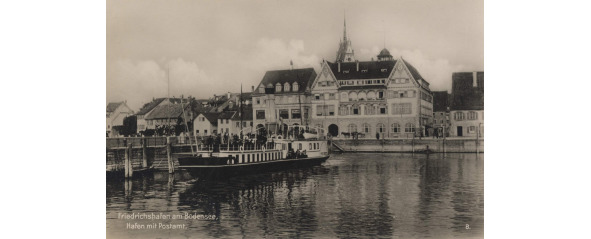
© wikimedia
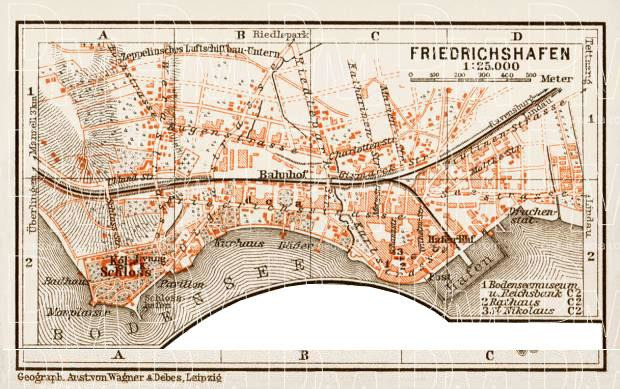
© discusmedia.com
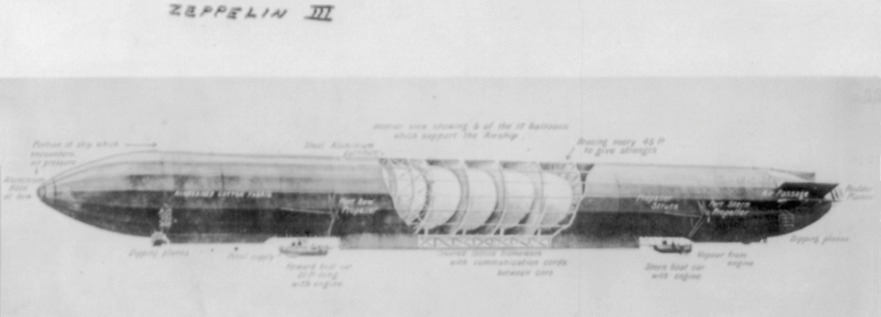
© gmu.mossiso.com
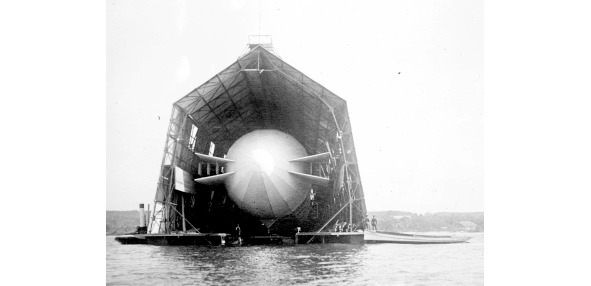
© barnebys.de
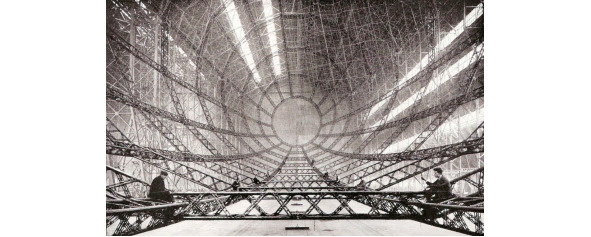
© pinterest.co.uk
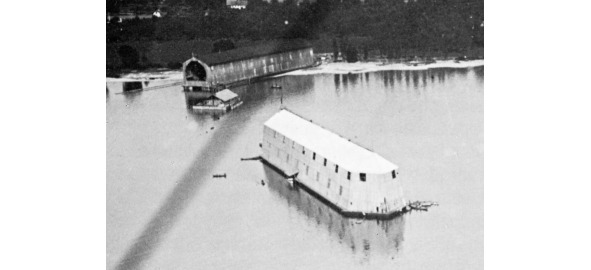
© stampaday.wordpress.com
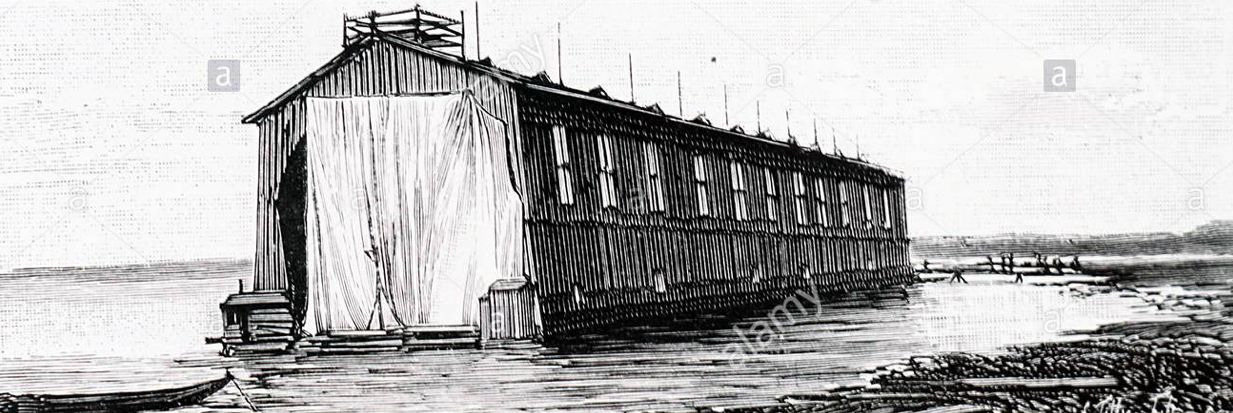
© alamy.de

Chapter 5. The rise
Most of all, Emma Osterman loved the sky. And now she was closer to him than ever. These unknowable depths and heights seemed to part, opened up to Emma, recognized as their own.
She sat next to the fountain of Charles and Olga of Württemberg, red Italian marble, rectangular, similar to a commemorative slab, but fine workmanship: carved, with a double royal monogram and a chiseled lion’s head, from which water spouted in a thin stream into a massive bowl. The wind stirred the strands that had fallen out from under the hat, collecting the last autumn leaves underfoot. Emma looked up at the clouds, at the sky, imagined herself as part of the wind. What’s up there above the trees? What is there, beyond the blue sky? How far does it extend, and will Emma have enough life to know it? She wanted to turn around and look into the distance, at the lake, to admire Mount Sentis, for which the clouds tenaciously clutch. But the fountain was installed somehow awkwardly, facing the street, which is why Emma sat with her back to the lake. She went over in her memory the moments from the start of the «third», her first airship.
At noon on the ninth, through a gigantic crowd (so many people she had never seen in Storkov), Emma made her way to the road above. She was going against the grain — onlookers were descending to the bay, especially prudent lucky ones had already taken their places in boats that were rocking on the waves somewhere, away from Emma and closer to the floating hangar. The cold autumn sun, invisible behind the steel clouds, the same steel-colored water, a slight western breeze, still green trees that stand out against the background of the blue mountains on the other side — it seemed to the girl that it would be difficult to choose more beautiful weather for the start. She wanted to remember every minute of this day, no matter how it ended, but Emma felt with all the cells of her body that it would end well and that the day would be special. Going upstairs, she saw in the crowd of acquaintances: Herr Colsman from the Supervisory Board of Berg’s factories, at a distance, the count’s old friend Theodor Kober was arguing with someone in a military uniform. In the distance stood a line of horse-drawn carriages of the royal cortege — Wilhelm of Württemberg was talking about something with the burgomaster. The Life Guards in pointed helmets pushed back the crowd of curious people.
Turning back to the bay, Emma saw dozens of people pulling a giant silver fish filled with hydrogen along the long slipways from the hangar. Somewhere in the cockpit, Count Ferdinand von Zeppelin watched intently as huge horizontal fins emerged from the darkness of the boathouse. Dürr was responsible for altitude control: he made wind calculations and made the last marks along the route. Hugo Eckener, science and technology correspondent for the Frankfurt Gazette, sketched out the beginning of the note in cursive script. Mechanic Bauman and an observer from the Imperial Navy Administration, the captain of the corvette Jansen, were also here. Six more crew members were located in the second cradle, preparing the engines for launch, checking the pitch stability, and controlling the rear steering. The giant fish floated out of the hangar and froze. Emma stared at the technical marvel she was involved in with all her eyes. She was torn apart by a sense of belonging, she wanted to jump, point to the bay and shout — me! I helped too! I work for Count Zeppelin! But she did not jump and did not show anywhere with her hand, she only squeezed her suddenly sweaty palms in gloves. Along with hundreds of other eyes, Emma watched the gray-colored aeronautic aircraft slowly lift its nose above the water as LZ 3 began its ascent.
Apparently, the wind changed, because the clouds stretched, the sun cleared of a silvery haze, and now the airship stood out in a clear blue sky as a clear oval, under which one could see both the cabin and the little people inside. The «Third», slowly, confidently rose higher and higher: one hundred meters, two hundred, four hundred, reached a predetermined height. The nose and tail aligned in one horizontal line, and now one could feel how the ship reacts to the wind: it vibrates pleasantly, like a sailboat. We moved along the coast, plastered with people. They looked like oil strokes from above: blue, black, brown, here and there, ladies’ hats and umbrellas flickered like bright spots. From time to time, glare flickered: either from camera flashes, or someone was looking through binoculars. The engines rumbled pleasantly, the airship reached its operating speed of fifty kilometers an hour.
From the road, the «third» seemed like a toy, moving away from onlookers, members of the ministerial commission, journalists, photographers, and even King Wilhelm, so that, Emma knew, turn around over the lake, pass over the Swiss side and, if possible, return directly to the starting point — nothing characterizes a ship better than the ability to moor to its native harbor. The airship sailed west over Lake Constance, its shadow moving along the waves below, and the gulls flew after the shadow, mistaking it either for a big ship, or for a small whale (although where it could come from here, but the gulls didn’t know), hope to eat fish. When, after two hours and seventeen minutes, having traveled ninety-seven kilometers, the «third» obediently, like a tame bird, sank down to the crowd, dozens of human hands grabbed the mooring lines, pulled them together forward and down, and she carefully held both fellings over the still green grass, waited until they will drop anchors and fix them in the ground, and only then froze, trembling with a cloth.
Madness was going on around: the crew was given hands, pulled out of the cabs, put on the ground, hugged, slapped on the back, shouted «Success!» and «Glory to Zeppelin!». Emma squeezed her way to her own to take a sip of at least a small spoonful of this happiness, but already now some new feeling was flooding inside her, which she had not known before — the success of a common cause. She waved her hand from behind and shouted «Bravo! Bravo!» jumped up and made her way through the crowd again. When at last she got out to the carriage, she was the first to rush to hug Dürr — he was closest of all and, moreover, stood face to face.
— Mr. Dürr, congratulations! You are heroes! You did it! Emma pulled away from Ludwig, shook his hand, but could not resist and hugged him again. Dürr’s heart was pounding like crazy, but Emma didn’t notice because her insides were jumping out of happiness. The designer somehow strangely wilted and allowed himself to be crushed and shaken like a doll.
— That’s right, it’s a shock! Congratulations! Congratulations a thousand times, you are great! — and rushed to hug the rigger Marcus.
When Emma managed to get to the chief, she saw next to him a military man, handsome, but with a surprisingly sour face for such a day, and some other gentleman, it seems, from the ministry. Emma, smiling and glowing, stood behind the ministerial gentleman so that the Zeppelin could see her.
«I congratulate you, count,» the sour military man tried to keep his face, but it slipped every time. — The driving characteristics of the ship are really excellent. Elevators provide more pitch and roll control, and this, of course, has a positive effect on aerodynamics when climbing and descending.
— Thank you, Major. Yes, and the speed was achieved decent, it reached sixty kilometers per hour.
Zeppelin seemed to be speaking seriously, but Emma already knew that he was smiling: both his mustache and his eyes filled with internal laughter. The major nodded politely, angrily turned to his escort and moved away from the victor into the crowd. Emma approached the count.
«We nailed him, Miss Emfolg!» Zeppelin whispered to the assistant, took the assistant by the elbow and smiled slyly.
«That’s not the word, chief!» Congratulations! And who is it?
«And this, dear Emma, is our rival. Major Hans Gross, commander of the second Prussian airship battalion. Designer of a semi-rigid wake airship. Have you heard about him? Emma shook her head. — He teaches at the military-technical academy and has become an expert in the military ministry. Well, at a lecture I once said that I stole the idea of a rigid airship from Schwartz.
— Yes you?! Emma clenched her fists indignantly.
— Yeah. Well, I challenged him to a duel,» the count continued calmly, as if it was not a duel, but a couple of beers and sausages. Emma raised her eyebrows and opened her mouth indecently, as if trying to guess who was who? Zeppelin was pleased with this young reaction, everything was new to her: both life and death.
— Yes, there was no duel, the emperor forbade it.
«Wow, bastard,» Emma hissed at the back of the departing major. The Zeppelin laughed.
— No, definitely not a bastard. Also sick of the sky, like you and me. He already has about two hundred balloon flights, no one has had so many flights.
Emma noticed that envy crept into the words of the Zeppelin, and decided to cheer him up.
«Still, you are the best!» And I’m proud to work with you! Can I hug you?
«You can,» the boss replied magnanimously, and he pulled his assistant to him. Thank you, Miss Emma, thank you. You really brought us luck. Well, let’s go enjoy the glory, shall we?
And Emma stretched out in such a happy smile that the Zeppelin laughed out loud and slapped his thigh with his hand.
— Come on, let’s go. Let me introduce you to different cones.
They retreated half a step, the same gentleman approached, behind whom Emma was pushing. After saluting the earl warmly, as if he were an old friend, the mister looked at Emma.
— My faithful assistant Miss Emma Osterman. Emma, this is Theodor Lewald, Director of the Ministry of Culture in the Department of the Interior. Saved us from bankruptcy in 1904. I saw our airship at the World Fair and convinced the military that the technology was interesting. Well, then we were still floundering.
Emma smiled at the ministerial gentleman — she liked the people who believed in her boss and his ships. Then we walked a little more, talked with Kober, met Colsman, discussed technical issues. Emma, although she did not understand a word, listened attentively and did not stop smiling. When they approached the royal couple, she politely stepped back, although she looked, of course, with all her eyes. Wilhelm and Charlotte congratulated the count on a successful flight. The sovereign did not stop believing in Zeppelin and his work, so he was aware of many of his affairs. Emma had never seen members of the royal family so close before, and she, imbued with the importance of the moment, somehow froze, stretched out and, it seems, was not even breathing.
In the evening, curled up in a ball in bed, she lived that day over and over again. Already falling asleep, it seemed to Emma that people were coming up to her and congratulating her, and shaking hands, hugging and approvingly clapping on the shoulder. And somewhere nearby, the «third» was anchored, and vibrated, rushed up, beckoning Emma with her, into the sky…
* * *
Ten days later there was a new victory. The count came from Berlin and brought the best news that could be expected: the commission of the German War Ministry issued half a million marks for the continuation of work. The Reichstag decided to reimburse von Zeppelin for all his personal funds spent. True, the commission put forward a demand to improve the ship’s driving performance and set the task of performing a continuous flight over a distance of more than five hundred kilometers with a stop on solid ground. Intoxicated with success, Zeppelin boldly proposed increasing five hundred kilometers to a twenty-four-hour non-stop flight. Then, they say, let the ministry buy a proven car. Since the «third» did not have such capabilities, literally on the day of arrival, everyone sat down to develop a new ship.
Emma was so caught up in the fast-paced events that she didn’t have time to watch the day turn into night. It seems that from all over Germany the postman brought letters, congratulations and postcards to her tiny waiting room. Dresden University of Technology sent a beautiful document awarding Zeppelin an honorary doctorate. One day a messenger from the town hall came running. Burgomaster Peter Schmid appointed the count as the first honorary citizen of Friedrichshafen for special merits and asked when it would be more convenient to organize a solemn presentation. Now, from a sleepy little-known town to the world’s first airship port, Friedrichshafen is filled with enthusiastic tourists. People walked and drove to the shipyards to see with their own eyes both the floating hangar and the airship itself. The «Third» has already been laid up for the winter, the hangar was pulled up to the shore, so the tourists had to be content with the open mouth of the boathouse, in which one could see the stern and tail of the ship. But even that was more than enough! Tourists groaned, gasped, caught Emma by the sleeve and asked to tell again how everything was on the ninth of October. Even in military affairs, von Zeppelin rose one level — from lieutenant general to general of cavalry. In general, if not for the approaching winter and the approaching departure of the count, Emma would not have thought at all about her future prospects.
Now she was sitting opposite the fountain of Karl and Olga and thought that she needed to find winter housing — unheated barracks were not suitable for permanent residence. Lotta said that opposite Max Schölhorn’s brewery was the small house of Mrs. Jablonsky, the captain’s widow. It seems she has a couple of rooms for rent, only you need to come in the afternoon, because in the morning the widow goes to the cemetery to her husband. Therefore, Emma sat on the bench, waiting for the right time. The Zeppelin gave her a salary and money for a room in the morning. Emma remained at the shipyard to work: sort out the incoming documentation, send some to the count’s estate in Stuttgart, file some and store here at the headquarters. Now with her appearance, Zeppelin was not afraid to miss an important offer and could only focus on work. Emma knew that Dürr and Eckener were staying in Friedrichshafen, so she didn’t feel left out. She did not even think about a trip home: how to leave the fair, if the fun was just beginning here?
The clock on the town hall finally struck noon. Emma got up, dusted off her coat, and walked from the fountain to Friedrich Street, and along it straight to the small square, on which were the Schölhorn brewery, and the church of St. Nicholas, and the widow’s house. Fifteen minutes later she was standing on the porch of a neat two-story house overlooking the bay. A beautiful elderly woman of about sixty (didn’t dare to call her an old woman) opened the door.
— Good afternoon. How can I help?
Hello Mrs Jablonsky. My name is Emma Osterman, my friend Lotta Prüger said that you rent rooms.
— Right. Only, you see, the second tenant is a man. Doesn’t it bother you? «Mrs. Jablonsky seems to be embarrassed by the thought herself.
Are these rooms next to each other?
— Oh, what are you, no. Free room on the second floor, next to mine. And the guest lives downstairs, next to the dining room.
— Great fit! Emma Osterman, a well-known rope cutter, confidently answered.
— Well, come in then, dear, come in!
The girl entered the house, undressed in the hallway and went into the dining room. Mrs. Jablonsky offered her tea and sandwiches, both of which came in handy for Emma, who had worked up a lot. While we were waiting for the kettle, we went up the sturdy stairs to see the room. Small, elongated. To the left is a window overlooking the lake. To the right of the window is a bureau and wardrobe. At the end wall there is a narrow bed, a lamp. Opposite is a bottle-green tiled stove and a small forged firewood rack with a hanging poker tucked next to it.
— Well, how? the hostess asked without hiding her excitement: she liked the girl.
— I think it’s great. And the view is excellent. «Emma really liked it here, this neat house, and the beautiful Mrs. Jablonsky, and the view from the window, and the old stove. They were already turning towards the exit, and then Emma saw a small portrait next to the door: a tall mustachioed man, as handsome as the mistress of the house, in full dress lieutenant’s uniform, next to him in an armchair sat a tiny girl, white, in a pale blue moire dress with bustle and open shoulders. They looked not at the painter, but at each other, radiating a mysterious light. Ugly slowing down in front of the door, Emma thought: this must be love. Mrs. Jablonsky, already standing in the corridor, said:
«This is my son Jeremias with his daughter-in-law. If you don’t mind, I would like to leave this portrait here. This is Yere’s former room.
«Of course, I don’t mind at all. They are very beautiful, — Emma wanted to please the mistress of the house, and the couple was really beautiful.
Yes, they were beautiful. Come on, honey, the kettle’s already boiled, I guess.
We descended into the dining room in complete silence. Emma felt tense, but she did not ask questions: at least here she had the tact to remain silent. Sat down to drink tea. We politely discussed the rent for the room, then the conversation turned to Emma’s work. Mrs. Jablonsky perked up.
— Wow! How lucky you are: working with Zeppelin is a great success. By the way, my guest also works at his shipyard. Some kind of mechanic or engineer, I didn’t really ask.
Oh, I know everyone! And what is his name?
— Mr Dürr. Ludwig Dürr. Also stopped by recently, a week and a half like. A pleasant young man, more and more silent.
Now it’s Emma’s turn to exclaim:
— Wow! Of course I know Herr Dürr. We are on good friendly terms. It’s even good that he is your tenant. It is more convenient for us to get to the shipyard together. I am very glad that he is my good friend!
— That’s how nice it turned out. And then I was worried about how you would be with a stranger, you are a very young girl. Now my heart will be at peace.
Emma perked up at the thought that a familiar person would be nearby. Still, even though Dürr is wild, but not a stranger. Twisted, turned around. After about five minutes I laughed.
— Mrs. Jablonsky, I’m sorry, why did you say that the son and daughter-in-law were beautiful? Now ugly? Something happened?
The woman sighed heavily, staring at the rim of the saucer.
— Darling, call me Mrs. Ulla, I’m Ulrike Jablonski. Yes, it happened. There are no more. Died. Each got his own. But they left beautiful, yes. Here God did not take away.
«Sorry,» Emma blushed. — Excuse me, please. I didn’t mean to upset you with my questions.
Nothing, I’m used to it. Have you heard of the Indian Wars?
— Mmm… Which ones are in America? That is, in the United States? Emma tried to remember what she had read in the papers about it. In the gymnasium, my father did not pass them.
Yes, the same ones in America. The Apaches attacked the settlers, and Yere went there as a military observer. It was safe, the resistance stopped. Geronimo, chief of the Chiricahua tribe, signed the surrender in September 1986. In the summer of that year, Yere and Cora got married, and at the end of October my boy had already left for the North American States. I didn’t mind, service is service. And you know, Emma, can I call you by your first name? Emma nodded. «And you know, no premonition. Nothing at all.
Mrs. Jablonsky paused, touched her saucer.
«We were told that some of Geronimo’s last warriors attacked the fort on Christmas Day. Cut out everyone who was.
«God…» Emma gasped in horror. «Those tomahawks, right?
— No, honey. They are quite proficient with modern weapons. Although, of course, Yera was lucky in a sense: he was killed by a bullet. And other soldiers and officers were hit by tomahawks and bone knives. Tha-a-at’s it,» Mrs. Jablonsky said thoughtfully.
«A week later, we found out that Cora was expecting a baby. And then either cry, or rejoice. Everything, you know, somehow mixed up. I cried all day, my husband left home. Tried to endure grief alone. Jere is our only son. He was an only son, Mrs Ulla corrected herself.
— Cora lived with us until the summer, and then she decided to go to her parents in Berlin. How did we answer her? And the term is already long, where I was going. But she was so stubborn, even though she was a mouse. Probably, Yere fell in love with her for that — you can’t move this girl, if she thought of something. I followed her like a calf follows its mother. That’s the kind of love…
They were silent again. They sighed.
— In general, they did not answer. I went to go, but disappeared. A month later, they found her, for some reason, in a stagecoach, together with the coachman. Both dead, the carriage crushed them. Where she was going is unclear. And the worst thing is that, apparently, the birth began from shaking, and the baby disappeared. The wolves must have taken it.
Emma didn’t even realize she was holding her hands over her mouth. Mrs. Jablonsky told her story in a calm voice, without trembling. So you can tell the recipe for apple pie, I guess. Horror cut through Emma to the bone. After all this, she could not leave her mistress alone. It doesn’t matter what prompted Mrs. Ulla to confide in a girl she’d known for half an hour. Something between them arose, whether trust, or internal similarity. Words were spoken, grief hung over the dining table.
— Tha-a-at’s it, — repeated the hostess.
«I… I…» Emma bleated.
«No need, dear. No need. You can’t help here. To each his own cross. Sympathy is also not needed, you know, it only hinders. Like a veil: you can see the lady, but you can’t. So what, hands? Are you staying?
Emma stood up impetuously, walked around the chair, and hugged Jablonsky from behind. Both had a lump in their throat. Mrs. Ulla placed her warm, dry hand on Emma’s arms.
So, when are you planning to visit?
* * *
Zeppelin tied the boat, went to the pier. There, cab drivers stood in a row: everyone nodded in greeting, raised their caps. I took the nearest gig — two Zepps. Josef and the gelding had the same name. Konik was a meek, white suit. The Zeppelin sat down next to the cab, and off we went.
Are you leaving, sir?
— Yes, all the work was completed, probably tomorrow in Stuttgart.
— How is your «third»?
«It hibernates,» the Zeppelin smiled. Everything pleased him now and there was no bad news. Ludwig will look after her. Yes, and over the «four» began to work. I’m thinking about improvements.
— Oh, and you’re a head, sir count! Sepp sincerely admired the great countryman.
— How are your girls?
— Thank you, sir count, they are studying. If it weren’t for you, they would go to the dishwashers, and, you see, they will be like your Emma: work for learned people. Although we are simple people, we understand…
We turned onto the road to the castle.
«Stop here, I’ll walk a little.
«As you wish, sir count,» the white Sepp calmly stopped at the turn. The Zeppelin handed the driver a generous payment.
— Well, until spring, perhaps?
«Until spring, sir,» Sepp lifted his cap in farewell. — Thank you for everything.
The Zeppelin walked down the alley towards the house. Girsberg was about two hundred meters from the turn. The count thought about how to provide the new car with better handling, admired the sunset, in general, felt peace. Turned to the house, went through the castle gates. I saw a heavy female figure run out from behind the house to the right. Along that path through the woods they went to their younger brother — his house was next door. An elderly woman stopped near the porch when she saw the Zeppelin. It was Sophie, Eberhard’s wife. The count ran heavily along the gravel to the house, his daughter-in-law was choking either from running or from tears: now Zeppelin saw it.
What, Sophie, what?
«Abi is dead,» she replied, and sobbed as she fell onto the zeppelin porch.
* * *
It was already noticeably getting dark, the count had gone home an hour ago, the last workers received their pay and departed in all directions before spring. Only mechanics remained, locksmiths and Dürr. Ludwig finished the page, rolled the drawing into a tube and placed it in the corner of the room. There was another job waiting at home. He left the workshops, put the lantern on the stones, locked the doors and went to the barracks. There he twisted the wick and hung the lamp on a hook, looked at the dark windows. Emma was not there, where is she at such a time? Puzzled.
Came from the bay to the illuminated streets. As he walked, he remembered how Emma hugged him after landing. The stomach then sank somewhere down, it seems, into the very boots. With one trembling hand, he grabbed the cockpit, and with the other he began languidly slapping his breast pockets, pretending to be looking for a working notebook. People approached Ludwig, said something, shook his elbow, patted him on the back and left. Dürr seemed to have stopped hearing, the damned suprarenin doused him first with heat, then with cold, and Ludwig was so disgusted by all this that neither a successful flight nor well-deserved praise from the designer pleased him. I wanted to run all the way to the barracks to lock myself away from everyone in my little room. But how to run if the legs are wadded and cold sweat rolls down the back. The cause of the hormonal explosion about ten meters from Dürr was already hanging around the journalist’s neck and rattling something enthusiastically. But here the whole crowd was enthusiastically buzzing, so it was difficult for the engineer to hear Emma. So Dürr realized that the rumor had returned. He didn’t know how to deal with himself. Love interfered with irritation: a damn doll came to my head.
The city was seething, although it was already late. Dürr went to a familiar baker, who left fresh bread for his mistress, took away the rolls, walked through the yards to the house. When I crossed the square, I saw that the windows of the dining room were on fire: Mrs. Jablonsky, apparently, was waiting for the guest for dinner, although he told her that there was a lot of work and that he would be more and more late than he was having dinner. But the hostess calmly replied that she was used to waiting for her husband from the lake in any weather: if only he would return. He opened the door, shouted from the threshold:
«Mrs. Ulla, I took your pumpkin bread!»
He went into the dining room and was taken aback — the damn doll was drinking tea and smiling happily at him.
* * *
And so they lived. A day later, Emma moved things, Ludwig had no choice but to be silent and help. The designer was covered with waves of heat, then cold, then irrepressible desire, then aggressive anger. He, like a wolf in a trap, was ready to bite off his own leg, just to avoid waiting for a painful death. And the fact that Durr’s brain and heart were dying next to Emma — don’t go to your grandmother. After the unbearable first weeks, Ludwig accepted the fight: he straightened his shoulders, stopped shaking. If he was destined to go through pain, well, so be it. The wound heals faster. And if the fog still periodically covered him, then Dürr strengthened his control at such moments, like a captain looking at a close shore for thick milk spilled in the air.
The men from the shipyard boarded up the upper floor of the barracks with boards so that strangers would not roam. Therefore, few workers now concentrated below, and more and more often there were only two of them, each in his office: at one end of the corridor — Emma in the waiting room, at the other — Ludwig. As before, he often visited the workshops, together with mechanics and locksmiths, sharpened something, drilled, tried to solve the problem of deviation by experience, finalized the steering, but sooner or later an icy wind blew from the lake, which penetrated with a whistle into workshops, it began to get colder, and Dürr shamefully ran into the office. Emma carefully took sandwiches for two from home, bought a bar of chocolate or some marzipan in a pastry shop, sometimes half a dozen eggs, a bunch of chives, a piece of cheese, in rainy weather the lunch basket was replenished with a bottle of wine and spices. While Dürr was calculating something, drawing, crumpling and drawing again, Emma opened the now empty kitchen, lit a fire in the stove and prepared a snack for the two of them. She finely chopped onions, fried scrambled eggs, brewed mulled wine, laid out sausages and cheese in large pieces, unwrapped sandwiches, lit a lamp if it was cloudy, and followed the designer. They sat in an empty warm dining room next to the stove, looking out the window, then at the food, then at each other, but they looked differently: Dürr furtively, and Emma boldly, looking into the eyes. Stupid doll, Ludwig thought humbly. We talked about this and that: Emma talked about the house and a large family, Ludwig — more and more about airships and how they would one day change the world.
Then everyone returned to their cell: the designer counted, drew, crumpled and counted again, the Zeppelin assistant printed out letters, registered them in a large ledger, wrote answers and thanks, packed some of the correspondence in new envelopes, so that in a day or two they would be sent to the count in Stuttgart. Of course, everyone knew about the death of his brother. The next day after the funeral, Zeppelin arrived at the headquarters, warned them that he was now finally leaving, but the address was the same, the tasks were clear to everyone, let’s work productively through the winter in order to put the «four» into production in the spring. They hugged and shook hands. Emma remained in the waiting room, Dürr went out to see the chief on the porch.
— They say you rented rooms in the same house?
— They say it right. Rented,» Dürr sighed heavily.
«Well, hold on, old man. Maybe it’s for the best. Get used to it, you look, and fall out of love. Maybe she chews indecently at dinner,» the count slapped Ludwig encouragingly on the back.
«That’s all I hope, Chief.
— Okay, write to me, as you manage to solve something with the management. I’ll think about how we can reduce windage: it’s damn hard to deal with impulses. Come on, old man, keep your nose up.
Eckener sometimes came to see Ludwig, Emma found out about this when she looked in to invite him to dinner. It was more fun then: Hugo was well-read, knew a huge number of tales, and neither Dürr nor Emma had to be bored with him. In the evening, when it was getting dark, the girl quietly scratched at the door of the designer, stuck her head in and silently waited for Ludwig to answer how much more time was needed to finish the work: half an hour, an hour, more. Sometimes he apologized and asked not to wait, then Emma closed the reception and walked along the darkening alley to the road alone to take a cab. But still, these were exceptions: most often they returned home together. When it froze, Emma clung to Durr’s elbow so as not to slip, they went along the way to the shops or to the post office to send letters to the boss. Ludwig at such moments felt Emma’s warmth with his body and thought: how strange, we are going home. We. What a wonderful life it would be if it had always been like this. At such moments, he was not overwhelmed and not covered, but, on the contrary, there was such calmness and peace, as if after a long frosty day he plunged into a warm bath and felt how every cell of his body, brain, soul was straightened out from fatigue and tension. They came home, where the kind Mrs. Ulla was waiting for them with supper, which was included in the price of the room, sat down together at a round table and told how the day had gone.
On Tuesdays, the washerwoman came, took the laundry for washing and returned fresh. Mrs. Ulla caught a cold somewhere, so the guests stayed at home to help with the housework, and the patient was told to lie down. It was mid-December, at night the temperature dropped to minus ten. Dürr brought firewood into the master’s room, Emma kindled the stove, wrapped Mrs. Jablonski, brought her warm milk with honey, held her hand on her hot forehead, shook her head. Quietly she left the room, took the wicker basket with dirty linen from the bathroom and went down to the kitchen. With Durr, they switched to their own way, so Emma asked:
«Ludwig, do you have anything for Mrs. Stein?» She will come after two.
The designer, who, having rolled up his sleeves and washed dishes in a stone sink after dinner, shook off the soap jelly foam from his hands, wiped them on an apron hanging on a hook and said:
— Yes it was. Now.
Emma dumped the dirty linen on the floor and began to fold it in a rectangle into a removable basket with a handle: Stein brought one, took the other. There was a knock on the door, Emma shuddered and glanced at her watch: a quarter past one, too early for a laundress. She opened the door and stood on the porch with a basket at the ready, Mrs. Stein, who said apologetically:
«Sorry, Miss Emma. I warned Mrs. Jablonsky last time that I would be there early. What happened to her?
— Caught a cold. Apparently that’s why I forgot. Come in, come in! Emma lured the washerwoman inside with her hand.
She ran down the corridor, knocked her knuckles out of habit on the Durr door, and without waiting for an answer she opened it:
— Ludwig! Mrs. Stein has arrived!
Ludwig stood completely naked, with one leg in fresh underpants, the other absurdly raised above the trouser leg. There were a lot of clothes on the floor. They both flared up, Emma slammed the door and looked out into the gloom of the hallway, shouted:
«Wait a minute, Mrs. Stein!
God, how embarrassing, Emma thought, her face flushed as she hurriedly put the rest of her laundry into the basket. Dürr stood before her eyes, absurd in his nudity and birdlike pose, and at the same time somehow exciting, because Emma had never seen naked men so close before. She did not perceive her brothers as men, and Vilda got their nakedness more than Emma. Of course, she also knew anatomy, and guessed how everything was arranged there, but like this — two meters away from her! Terrible! God, what a shame, Emma thought again.
Dürr calmly walked into the kitchen, put his things on top of an even pile, took the basket and went out into the hallway. He calmly took fresh linen from the laundress, handed him a change basket, poured coins for washing into his palm, said goodbye, locked the door, returned to the kitchen and began to wash the dishes. Emma was taken aback. That is, as? Is that nothing? Well, nope.
Listen, I didn’t mean to. Sorry, but you didn’t answer, so I went! — the girl began to chatter somehow assertively.
«Uh-huh,» Durr replied while soaping up a salad bowl.
— I did not want! Understand?!
«Uh-huh,» he muttered.
— I accidentally! I saw almost nothing! Emma seemed to have already come up to Durr’s shoulder and screamed into his ear, burning with shame.
Suddenly, the china fell into the sink, Dürr turned around sharply, pulled Emma by the shoulders to him with his wet hands and kissed her. She somehow suffocated, trembled, twisted her waist back and forth, but Dürr held tight and was not going to tear her lips off.
When they finally came unstuck, he threw a short «fucking doll» and continued to wash the dishes. Emma somehow absurdly, sideways, walked out of the kitchen, in a complete daze, as if she really were a wooden doll, went through the hallway, opened the door and went out onto the porch. Fresh wind from the lake at once clung to the fire-stricken face, Emma closed her eyes, listened to the pulsation in her whole body and thought what it actually was. She did not feel any attraction to Dürr, but there was a feeling that if it had not been Ludwig, then nothing would have changed. Of course, Emma had suitors who kissed her, but then there was neither this fire inside, nor this pulsation, but it was slobbering, somehow childish and terribly wanted to laugh in their faces. Emma turned her face to the cold wind, not noticing how it blows her to the bone. New feelings turned off the brain, and what can be a ratio at nineteen?
Suddenly, the door slammed behind me. Dürr, dressed in a jacket and cap, came out onto the porch:
«Damn doll, go home, you’ll catch a cold!» I went to the shipyard, I’ll work there. I’ll take your mail and bring it in the evening. If anything is wrong with Mrs. Ulla, send some boy to the doctor, you understand?
He was either angry or funny, Emma did not understand. She had never seen Durr like this before. He walked around her on the porch, turned her around the waist to face the hallway, rested his back and did not remove his hands until she entered the house. Already closing the door, Emma heard him throw his trademark in an undertone: damn doll!
It was all kind of weird. Damn weird! Emma swore to herself: what a bastard, he infected her with this cursing. She went into the dining room, looked out of the window, and watched for a long time as Dürr’s figure was moving across the square. Then she rinsed her face with cold water in the kitchen, exhaled — phew! I went up to Mrs. Jablonsky, she was fast asleep, the cold milk was on the nightstand, the firewood was crackling in the stove. Emma pulled down the curtains on the window so that the daylight would not disturb the patient, closed the door and went to her room. I climbed into a small armchair under the portrait with my feet, began to scroll through everything that had happened over and over again. Clean linen was left standing in the hallway.
Dürr ran down to the barracks and workshops, happy, slipping here and there. Just before the turn to the service buildings, Gretchen again flew under the mare, as he had five months ago, again received a hundred curses in the back, but now he only laughed white-toothed in response and shouted from somewhere below — sorry, Gretchen!
Damn fool, nothing else.
* * *
Before Christmas, a letter arrived in a thick cream envelope on paper with watermarks, monograms and a beautiful seal — Chancellor von Bülow expressed his disposition to allocate another fifty thousand marks for a new industrial model of the airship. Together with the income from a special lottery, which was approved by the state at the beginning of the month, it can be said that the money flowed into production like a river. Taking the opportunity, Emma, along with the letter from the Reich Chancellor, forwarded to the boss a neat newspaper square with an advertisement for typewriters and a tiny note from herself. She hoped, while the shipyard is quiet and relatively few people, to learn typing and switch to machine document management in the spring. That would be great — print a letter home! A few days later, the Zeppelin treasurer brought a week’s wages to the shipyard, also gave out a small bonus for Christmas, and added money to Emma for a printing press. She almost jumped back behind her bureau to write an application to the Frankfurt branch of the manufacturer.
The ridiculous incident was no longer discussed with Durr. Now he only sometimes jokingly called her a damn doll. Emma puffed up like an airship, but after five or ten minutes she forgot that she wanted to be offended longer, and behaved as usual. After the new year, the Remington was delivered to headquarters, and now Emma pounded the keys with abandon, skinning her fingers. A couple of times Dürr finished work before her, looked into the reception room and, leaning on the jamb, admired how she did not notice anything, pounding on small black buttons and looking at the scattering of letters on the sheet.
«Let’s go home, you damn doll,» he said over the threshold. Emma pouted her lips, jumped up from her desk, and while she put on her hat in front of a tiny mirror, fastened it to her hair with a pin, accepted Dürr’s coat, again forgot both about the damn doll and about the funny naked Ludwig, but only clung tighter to his arm and rumbled without silent all the way to the house.
One Sunday, such fluffy snow began to fall, which fell in large flakes unusually slowly, that in the dining room at dinner all three suddenly fell silent and stared spellbound at the windows. The wise Mrs. Ulla was the first to break the spell and quietly remarked:
— Would you like to take a walk? You work a lot, and what a beauty there is on the street. And, if it doesn’t make it difficult, take the tenderloin from the butcher.
She, like Zeppelin, noticed that there was some kind of attraction between the tenants, and from Ludwig’s side, of course, the pull was stronger. Jablonsky felt sorry for the «poor boy», tormented by unrequited feelings, but did not climb into someone else’s life. I just thought, wow, how unlucky he was: to live a meter away from the object of love and not have any reciprocity. After the December cold, it seemed to her that something had changed between these two, but she attributed everything to ordinary grinding — they began to see each other more often in everyday life, so Ludwig stopped twitching.
The youth got dressed and went along a long route: through the whole city to the castle bridge, from there to the Hofen monastery and then back. They were covered in snow, their footprints drowning in the lush foam of the pavement. The same white figures floated by, alone or in pairs. White carriages and white cabs moved slowly past, as if under a spell. White horses under white blankets spun with white ears. And Emma, which is strange, and Ludwig, which is customary, suddenly both fell silent and walked through the snow sedately, like a king, as if receiving a blessing from above. The amazing weather did not touch the city with a single breath from the lake, and Friedrichshafen suddenly turned into a fabulous place: silence, emptiness and immense happiness. Dürr was engulfed from the inside, as if they were walking back from a wedding, and the habitual pragmatism of not wishful thinking was buried under a heavy snowfall. They reached the butcher’s shop in complete silence, and, miraculously, without losing their winter magic in the realm of death, they went in the same silence to the house. Near the porch they froze somehow ridiculously. Dürr took off his glove and began to shake snow off Emma: from her hat, shoulders, arms, chest, back. She closed her eyes and felt something new, unusual fluttering inside. When she opened it, Ludwig’s transparent blue eyes looked so close that she was frightened and closed her eyes again. But Dürr didn’t kiss her or call her a damn doll. He leaned in close enough that he could feel Emma’s hair tickling his lips and whispered,
— I love you.
Emma remained standing with her eyes shut, holding the pork tenderloin to her coat. Only when she heard that Dürr was tapping her clothes, sweeping away the snow, she opened her eyes, remembered that she needed to exhale, exhaled and went into the house.
Ludwig exhaled too, took out a cigarette case and lit a cigarette.
Бесплатный фрагмент закончился.
Купите книгу, чтобы продолжить чтение.